“WE PLAY THE SAME LANGUAGE”





GERMAN TELEVISION PERSONALITY APPEARS ON THE JURY OF HUNGARIAN CLASSICAL MUSIC TALENT SHOW

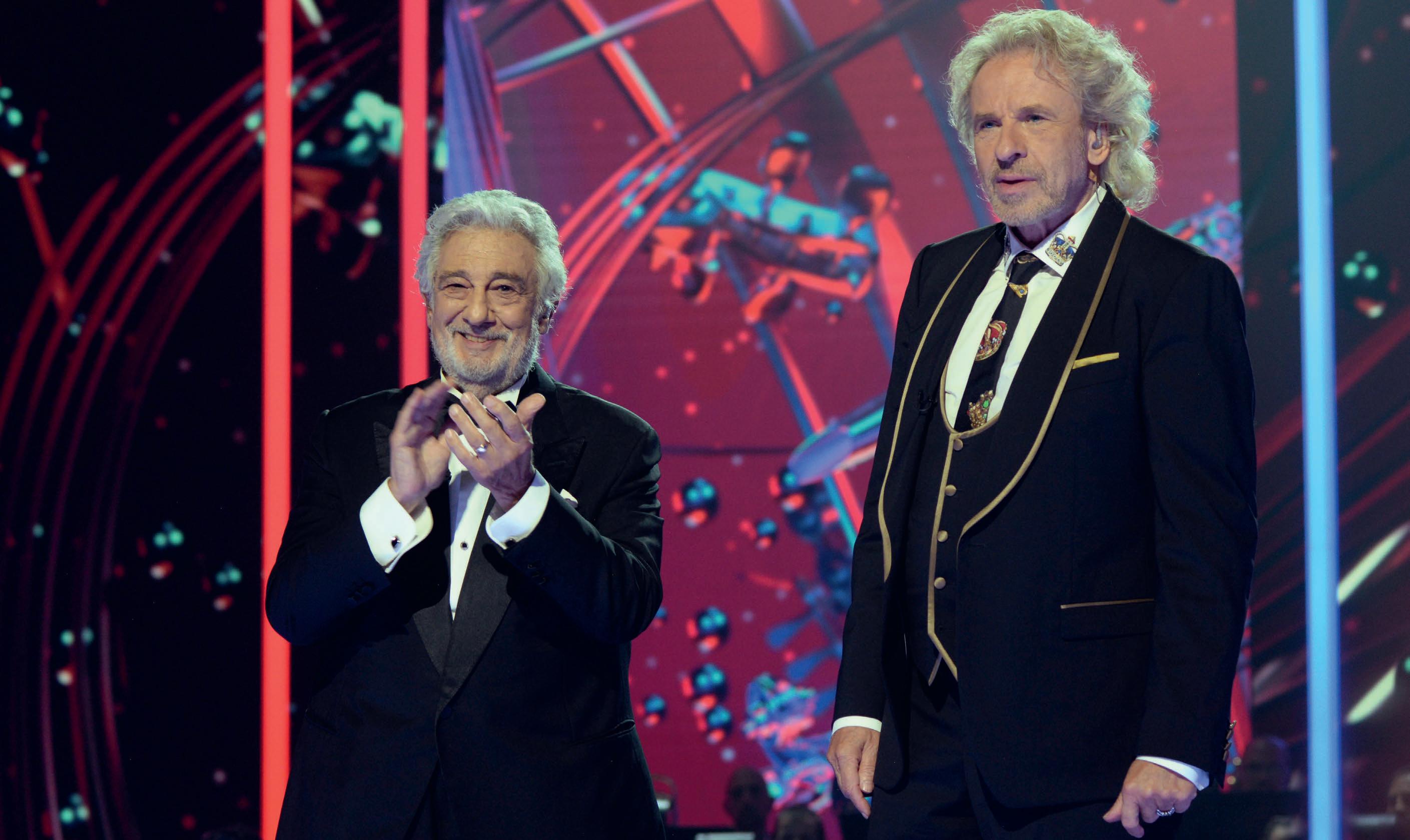
Germany
“The German-Hungarian relationship rests on a solid foundation. The thread of the conversation never broke off in the face of the differences of opinion,” German Ambassador Johannes Konrad Haindl points out to Diplomacy&Trade. In the interview, he also talks about the main goals of the EU Presidency held by Germany in the second half of this year as well as the major aspects of bilateral economic and cultural relations.

SEE INTERVIEW ON page 14 FOCUS
see articles on pages 10-15















A String of Success




A recording of Vivaldi’s Four Seasons by the Budapest Strings chamber orchestra has been watched on YouTube by over 220 million times – raking in a million ‘likes’! The piece is played, “with a very classical and lasting approach.”
see more on page 19


DECEMBER 2020 HUF 1710 EUR 6
country

DIPLOMAT DISCOUNT ON PEUGEOT MODELS AT PEUGEOT FÁBIÁN DEALERSHIPS! Peugeot Fábián Budapest | 1113 Budapest, Jászóvár utca 1. | phone: +36 1 361 4415 Peugeot Fábián Székesfehérvár | 8000 Székesfehérvár, Budai út 175. | phone: +36 22 303 406 www.fabianauto.hu
Image is for illustration purposes only. Please contact our colleagues for details.

Peugeot 508 mixed consumption according to WLTP standard: 4.725-7.784 l / 100 km, CO2 emissions: 123.94-175.47 g / km.

Peugeot 508 mixed consumption according to NEDC standard: 3.8-5.7 l / 100 km, CO2 emissions: 101-131 g / km

letter from the publisher
The Hungarian developed classical music talent show ‘Virtuosos’ has grown into a regional television contest. The young participants’ performances are judged by well-known personalities such as the Spanish tenor Plácido Domingo or the German television personality Thomas Gottschalk. The latter tells us how much he admires the talented kids.
The Federal Republic of Germany that holds the rotating Presidency of the European Union in the second half of this year is in focus this month. The German Ambassador Johannes Haindl says the Presidency aims for a stronger and more innovative Europe, while regarding bilateral relations, he highlights that Germany is Hungary’s most important trading partner achieving about one quarter of Hungary’s foreign trade and around EUR 18 billion of foreign investments in Hungary, with particular regard to the automotive industry.
As the Trump administration withdrew the United States from the Trans Pacific Partnership agreement, China stepped in and with the Regional Comprehensive Economic Partnership (RCEP), it is attempting to use a regional multilateral framework challenging the U.S. positions in the Asia-Pacific region. Our international analyst suggests this move could be “another brick in the Great Wall.”

In addition to the popularity of the Budapest Strings recording, our cultural section features ‘Nature Photographer of the Year 2020’, the most prestigious nature photography contest in Hungary and Central Europe held this year for the 28th time. Also, we tell you about the Budapest Strings chamber orchestra as their recording of Vivaldi’s Four Seasons produced three decades ago has been seen over 220 million times on YouTube and received a million likes!

This month, WittyLeaks – by the Belgian ambassador – is about the ‘Belgian of Szentendre’, a Belgian priest becoming an authority on the famed 20th century Hungarian composer, Béla Bartók and settling down in this small town just north of Budapest.
As Christmas fairs are overshadowed by the coronavirus pandemic, we tell you about how organizers present special online platforms this year for those who would love to buy special handicraft products, supporting local craftspeople. With the Festive Season fast approaching, our wine page take a look at what makes Tokaj Aszú special in many respects.

It is clear now that this holiday season will be more about reflection than partying as the pandemic grips Hungary. The miracle of modern science will soon start delivering a vaccine but until then, please, take all the necessary precautions both at home and work to keep your family, colleagues and friends safe.

We at Diplomacy & Trade wish you all happy holidays and a much better 2021!
Peter Freed PUBLISHER
cont en ts
16-19 CULTURE naturArt; Budapest Strings
20 WITTYLEAKS
by the Ambassador of Belgium
21 WHAT’S ON Concerts, festivals, events and exhibitions in and out of Budapest
Interview with Ambassador Johannes Haindl; Lidl; GermanHungarian Chamber of Industry and Commerce; Thomas Gottschalk in Virtuosos; Innovation cooperation
22 FESTIVE SEASON
Online Christmas market
23 WINE
The specialty of the Tokaj Aszú
PUBLISHER: Peter Freed EDITOR: Sándor Laczkó PHOTO EDITOR: Dávid Harangozó
SALES & MARKETING DIRECTOR: Tamás Varga ADMINISTRATION: Éva Madarász
CONTRIBUTORS: Sándor Laczkó, Tamás Magyarics, Réka A. Francisck, Siegfried Peinen
PHOTO CONTRIBUTORS: Judit Marjai (Cover), Nóra Halász (Cover), Budapest Strings (Cover), depositphotos.com, Embassy of Mexico, poliloop.com, Mozinet, spar.hu, SEMCORP, Márton Fejes/TriLiteFotoStudio, Wizzard/Wikipedia, Duna House, Dr. János Korom, Nóra Halász, Lidl Hungary, Bence Hegedűs, István Hogya, Csaba Pintér, Lili Sztrehárszki, Imre Potyó, András Hajnal, Embassy of Belgium, John McMurtrie, Museum of Fine Arts, Heritage House/Gábor Dusa, Ferenc Dancsecs
DUTCH FOCUS – COMING SOON

Next spring, Diplomacy&Trade – in cooperation with the Dutch Embassy in Budapest –presents a special Focus section on relations between Hungary and the Netherlands as the two countries have recently celebrated the 100th anniversary of establishing diplomatic relations. The Netherlands is one of the major distribution and logistics centers in Europe and an important trading partner for Hungary. The combined trade balance of the two countries is about EUR 7 billion. Ever since Hungary became a member of the EU, the number and volume of Dutch investments have increased significantly. Currently, there are over 800 Dutch ventures in Hungary. The special section includes an extensive interview with Ambassador René van Hell discussing economic ties, cultural and civilian cooperation. We also talk to the Netherlands-Hungarian Chamber of Commerce in Budapest.

DECEMBER 2020 |DIPLOMACY & TRADE| www.dteurope.com 4 Copyright 2004-2020 DUAX Kft., all rights reserved ISSN 1589-8075 This magazine is produced by DUAX Kft. The opinions published in the magazine do not necessarily reflect the opinions of DUAX Kft. photo by DEPOSITPHOTOS.COM, ISTVÁN HOGYA (NATURE PHOTOGRAPHER), FERENC DANCSECS We welcome inquires for advertising in this issue. PLEASE CALL TAMÁS VARGA FOR FURTHER INFORMATION +36 209 350 250 - tvarga@budapestweek.com AND DON’T FORGET monthly in print - daily on the web www.dteurope.com
COPIES ARE AVAILABLE AT SELECTED RELAY AND INMEDIO OUTLETS IN MAJOR HUNGARIAN CITIES. NEWSSTAND PRICE: HUF 1,710 or EUR 6 - Subscriptions are available for an annual fee of EUR 72 in Hungary, or EUR 90 to all other destinations. SEND REQUESTS AND INQUIRIES TO DUAX KFT. H-1034 Budapest, Bécsi út 60. TELEPHONE [+36-70] 320-3051 | FAX [+36-1] 350-5660 E-MAIL editor@dteurope.com | ADVERTISING tvarga@budapestweek.com 05 ON THE RECORD 06-07 COMPANY BRIEFS 08
Partnership (RCEP)
ANALYSIS Regional Comprehensive Economic
10-15 GERMAN FOCUS
Nature Photographer of the Year 2020
page 16
What makes Tokaj Aszú such a special wine? page 23
Regional Comprehensive Economic Partnership without the U.S. page 08
COVID-19:POLITICALAND HEALTHRESTRICTIONSIN HUNGARY
In a video message on November 3, Hungarian Prime Minister Viktor Orbán announced that a ‘state of danger’ would be introduced in Hungary over COVID-19 once again. In theaters, cinemas, and other cultural and sports venues, only every third seat can be occupied and mask-wearing is obligatory.
As of November 11, people are required to wear face masks even at public places (except for parks and other green areas and in case of sports activities) in towns and cities of over 10,000 inhabitants in Hungary. According to a night curfew, everyone needs to be home between 8 pm and 5 am. One case of exemption from the curfew is work, which, however, needs to be justified. One may also walk the dog after 8 pm and those in group hunting are also exempt from the rule.
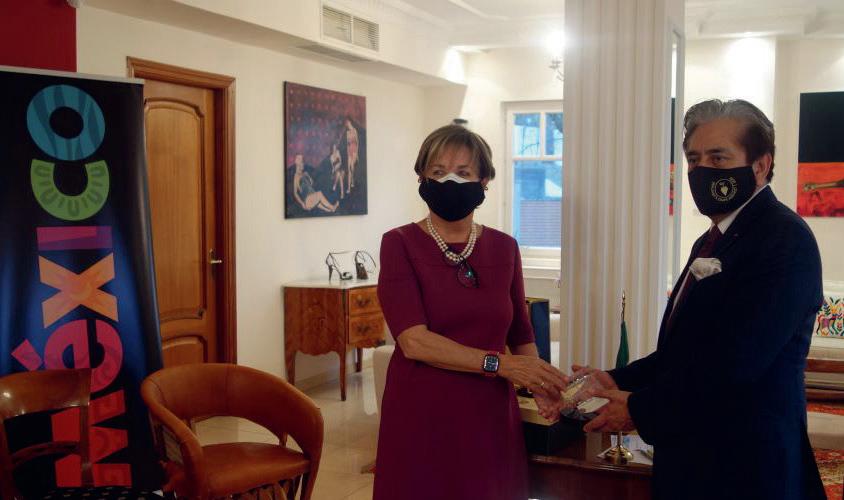
All gatherings are forbidden. Restaurants can only operate takeaway service. Factory canteens may be open. Shops, with the exception of pharmacies and petrol stations, can stay open until 7 pm and then open at 5 am at the earliest when the curfew expires. Providers and services not covered by this regulation (such as hairdressers, masseurs and personal trainers) may operate normally under the curfew rules. Hotels are not allowed to accommodate tourists, only guests arriving for business, economic or educational purposes.
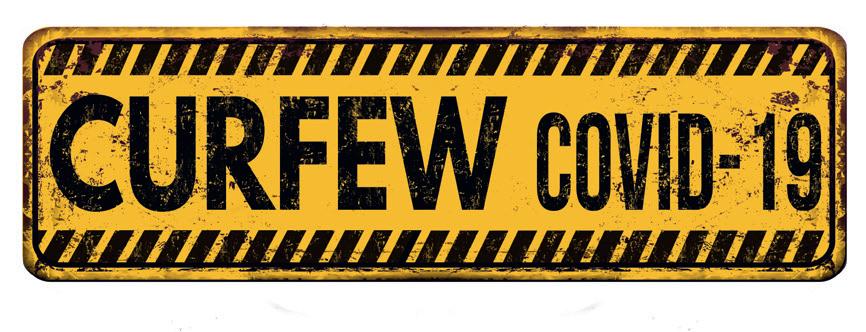
It is forbidden to hold any kind of event, including cultural events as well as Christmas fairs - religious gatherings and group hunting sessions are exempt from the rule. Sports matches must be held behind closed gates. Individual outdoor sports are allowed. Under applicable law, competitive athletes may not be restricted in this activity. The use of leisure facilities is prohibited, including in particular fitness rooms, indoor swimming pools, museums, libraries, cinemas, zoos and skating rinks. As of November 24, shopping time slots were re-introduced for the elderly. Customers below the age of 65 are banned from shopping in grocery shops, household chemists and pharmacies from 9 am to 11 am on weekdays and from 8 am to 10 am on weekends.
Towards the end of November, the government once again extended the closure of the country's borders first introduced on September 1 this year. It means that foreign citizens may enter the territory of Hungary only with justified exceptions, while Hungarian citizens returning from abroad must be quarantined. The government decree was extended several times and the end of the current extension is February 1, 2021.
on the record
work of the Mexican Embassy for Diversity and Gender Equality. Ambassador Nájera and the President of the Hungarian Business Leaders Forum (HBLF), Borbála Czakó renewed their commitment to diversity, values based on mutual respect, and non-discriminatory opportunities. They also undertook to develop a culture that promotes rights and responsibilities within the framework of equal treatment and reflects them towards society. As the exclusive representative of the EU Diversity Charter, HBLF promotes at the international level an initiative supported by the Hungarian government so far joined by more than 40 Hungarian and transnational companies in Hungary. Combining the signing ceremony of the EU Diversity Charter with the promotion of gender equality and diversity, the Embassy opened an exhibition, with the support of art historian Edina Koltai, presenting 20 works by 11 contemporary Hungarian artists.
December
1Romania National day
2 Laos National day
2UAE National day
5Thailand National day
6Finland National day
12Kenya Independence day
13Malta National day
16Kazakhstan Independence day
16Bahrain Independence day
18Qatar National day
24Libya Independence day
29Mongolia Independence day
January 1Cuba National Day
26Australia National Day
HUNGARIANINVENTION TOCOMPLETELYDEGRADE PLASTIC
Two young Hungarians produced a bacterium cocktail, unique in the world, which can break down any disposable plastic in seven weeks. Pharmaceutical chemist engineer PhD students Liz Madaras and Krisztina Lévay aim to offer an industrially relevant solution to deal with unrecyclable plastics "by mimicking nature, using the once polluting plastic waste as a carbon rich food source for our bacteria, who in turn create valuable end-product for us to use and integrate into a global circular ecosystem." They created a bacterial cocktail that consumes plastic packaging waste. These bacteria can use the carbon in plastic as a sole carbon source, integrating it into their metabolism. The process is akin to the way organic waste is consumed in composting piles, but the raw materials here are fossil based.
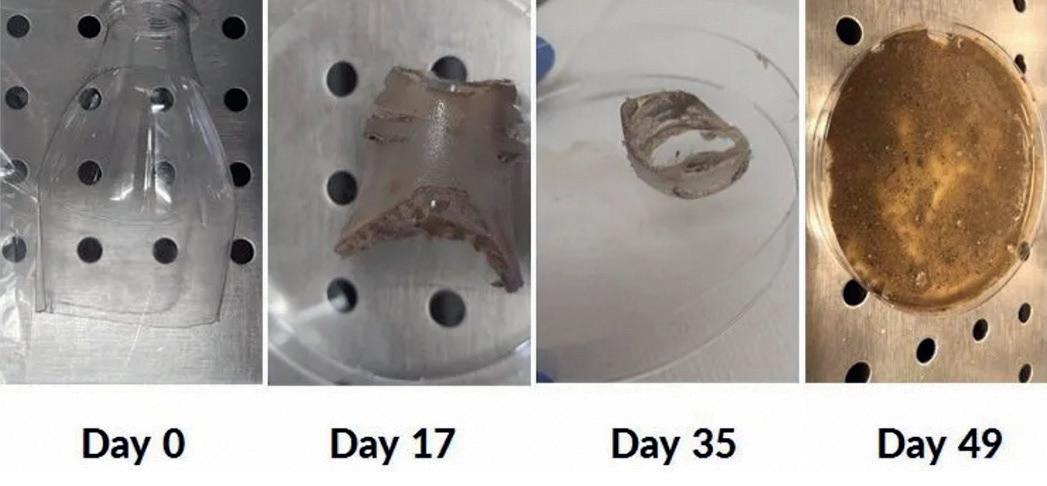
HUNGARIANACADEMY AWARDSENTRY ANNOUNCED
PREPARATIONS TO BE TOGETHER FOR AN UNKNOWN PERIOD OF TIME, directed by Lili Horvát, is the official Hungarian entry for the next Academy Awards, the National Film Institute has announced. The decision was made this November at the meeting of the Hungarian Oscar Selection Committee to nominate the movie, which explores the role of projections in love and about the fine line between romance and madness, to be considered for nomination in the 'Academy Awards - Best International Film' category.
Following its world premiere at Venice Days, PREPARATIONS TO BE TOGETHER FOR AN UNKNOWN PERIOD OF TIME, produced by Dóra Csernátony, Lili Horvát and Péter Miskolczi for Poste Restante, was premiered in North America as one of the few titles selected at this year’s special edition of the Toronto International Film Festival.
HBLFRECOGNIZES MEXICANEMBASSY COMMITMENTS

The Hungarian Business Leaders Forum (HBLF) presented Ambassador David Nájera with the Visionary Leadership Award this year, recognizing the
LEGENDARYHUNGARIANROCK MUSICIANPASSESAWAYAT77
László Benkő, co-founder of the rock group Omega in 1962, died at the age of 77 after a long illness on November 17,
"We are shocked to inform you that Laci Benkő, the founder of the Omega band, passed away after a long illness. Millions of fans and admirers mourn the decisive figure of Hungarian rock music both at home and abroad. Words are in vain, silence is painful, we are stunned to recall his life's work, music and his loving smile. Laci Benkő will stay with us forever," the band wrote on a social media page.
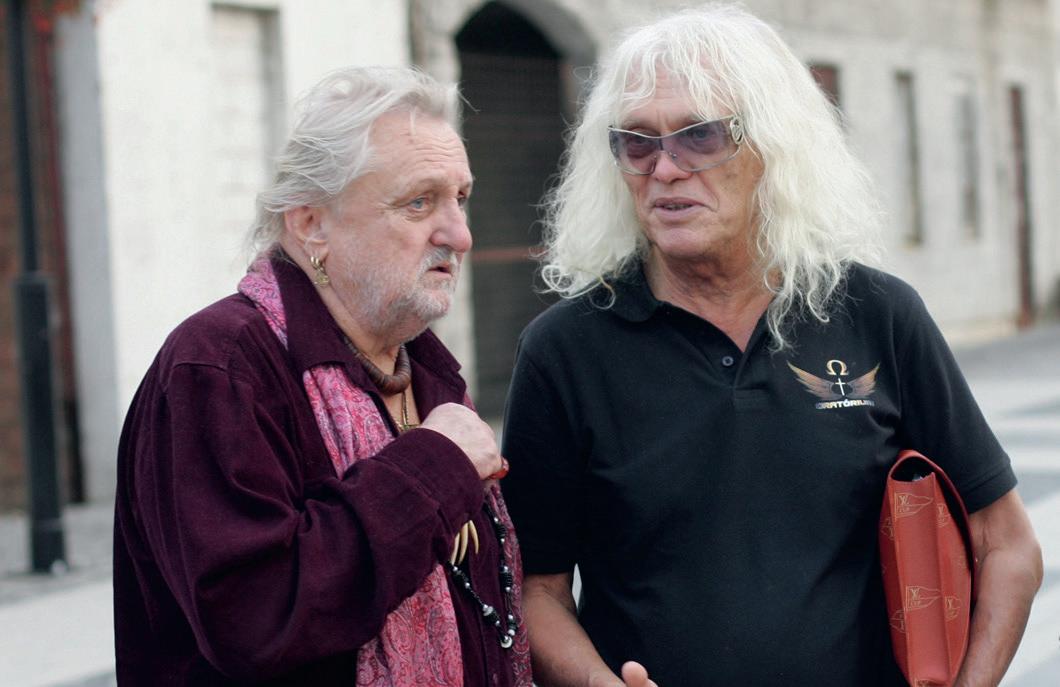
László Benkő’s decade-long achievements were recognized with the highest distinctions: he received the Kossuth Prize, the top Hungarian award in culture and the Ferenc Liszt Prize given to the most prominent music performers of the country.
HUNGARIANCAPITALCELEBRATES 147 THBIRTHDAY
It was 147 years ago (on November 17, 1873) that Pest, Buda, Óbuda and the Margaret Island on the River Danube were officially united under the name Budapest.

The idea of uniting the three cities and towns dates back to 1849. In that year, Interior Minister Bertalan Szemere ordered the unification of the cities of Pest and Buda and the incorporation of the market town of Óbuda. However, the political situation after the war of independence did not allow the implementation of the Szemere decree.
Following the Austro-Hungarian Compromise of 1867, the Mayor of Pest, Mór Szentmihályi, called for discussing the unification again. Administrative preparations and negotiations lasted for four years.
The city as we know it today – Greater Budapest – was established only in 1950, when the peripheral districts, which had meanwhile developed into towns and villages, were annexed to Budapest.
www.dteurope.com DIPLOMACY & TRADE| DECEMBER 2020 5 photo by DEPOSITPHOTOS.COM, EMBASSY OF MEXICO, POLILOOP.COM, MOZINET, DÁVID HARANGOZÓ
UPCOMING NATIONAL DAYS
company briefs
SPAR HUNGARY ACQUIRES ZIMBO MEAT PROCESSING PLANT
SPAR Hungary Ltd. announced this November that it purchased the plant of ZIMBO Perbál Húsipari Termelő Kft. ('Meat Industry Production Ltd.'). Following the successful completion of the transaction, the company will further modernize the meat plant, which opened in 1998 in Perbál, just west of Budapest.
“The most important goal of SPAR is to deliver quality products from controlled raw materials – as much as possible from Hungary – to the table of customers. Our purpose is the same in the fresh meat and meat products segment, where we can continuously adapt the production to changes in consumer needs through our own Regnum Meat Factory in Bicske. Due to increased demand in the recent period, we have decided to expand our production capacity. The SPAR
DECREASING SALES AT ZWACK UNICUM
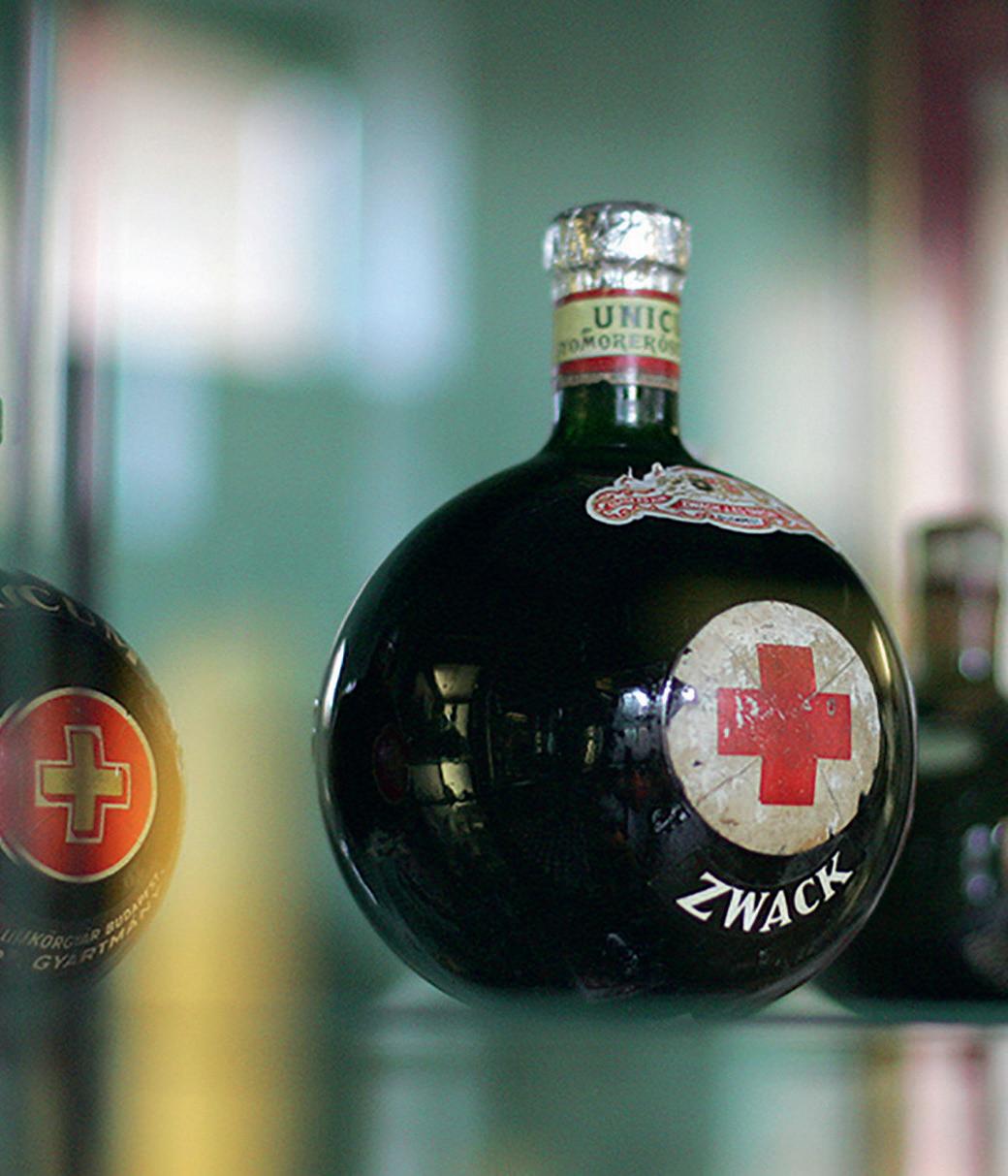
Total gross sales at the company amounted to HUF 10,724 million in the first half of the 2020-2021 business year – a year-on-year decrease of 12.3%. Net sales (that is, sales revenues excluding excise tax and public health product tax) were HUF 5,724 million, which is a year-onyear decrease of 11.5%.
A report by the company highlights that domestic sales strongly improved during the second quarter of the business year. In the first quarter, domestic sales had a year-on-year decrease of 24.1% mostly due to COVID-19 pandemic-related government measures to close, for two months, on-trade units (which account for about a half of the company’s domestic revenues).
SEMCORP GROUP CHOOSES HUNGARY TO APPEAR OUTSIDE CHINA
As the first production unit of the SEMCORP Group outside China, a lithium-ion battery separator film plant will be established in the Debrecen South Industrial Park.

According to a report by the Hungarian Investment Promotion Agency, the 97,000-m2 plant will start operations in early 2023, increasing the company's annual film production capacity by approximately 12%. The investment of more than EUR 183 million will create 440 new jobs.
SEMCORP is one of the world's leading companies in the development and manufacturing of lithium-ion battery separator film products. In China, the group has five factories with a total annual base film production capacity of 3.3 billion m2 which are mainly used in electric and hybrid car batteries as well as consumer electronics goods. Its customers include LG, Panasonic, Samsung, BYD and SK Innovation.
The company will start the construction of the first phase in 2021 on a 19-hectare plot in the Debrecen South Industrial Park. The 97,000-m2 plant will house four base film production lines as well as coating and slitting capacity.
The establishment of the new facility in Hungary is a strategic step in the life of the company, with which they want to become the number one supplier of separator films in the global market of lithium-ion batteries.
As in the July-September period there were no such restrictions, sales recovered. In fact, in the second quarter of the business year the company posted a year-on-year increase of 0.9%. While the two summer months brought tangible increase, in September, the second wave of the pandemic caused another major setback. Zwack Unicum Plc. is the biggest player in Hungary’s spirits market. As nearly 90% of its revenues are domestically generated, trends in domestic consumption are crucial for its wellbeing.
The consumption of premium alcoholic drinks has grown in Hungary over the past few years but the COVID-19 pandemic will most likely upset that trend for 2020 (in total consumption of retail and gastronomy), the company report points out.
Group has expanded with the Perbál plant, a tested, highcapacity, high-quality unit, which is now in the ownership of our group, further strengthening our position in the domestic meat market," the Managing Director of SPAR Hungary, Gabriella Heiszler is quoted in the company's press release.
The Perbál plant, with some 200 employees, will be called Regnum Meat Factory Perbál in the future. The products manufactured here will be available in SPAR's own network and in all franchise stores, and the production processes of the Perbál plant will be coordinated with the activities of the Bicske meat factory. Several major improvements will be made to the new plant in the near future, including the modernization of cooling technology. From a quality management point of view, just like in the existing plant, the processes in Perbál will be operated according to the ISO 22 000 system: the planned date for obtaining the certification is the next two years.

ALDI: 100TH ELECTRIC CHARGER STATION IN HUNGARY
Cooperation between the department store chain Aldi and the E.ON Hungária Group has come to another milestone: the 100th e-charger opened at the chain's stores in Hungary. Aldi opened electric car chargers at another 18 of its stores in cooperation with the E.On Hungária Group this November as part of the network of 147 chargers planned for 2019-2020. Thanks to opening these new stations, the service is now available at 68 stores.
Out of the 18 new chargers installed and operated by E.ON, eight are available in the car parks of stores in Budapest, and the rest opened in Gödöllő, Kaposvár, Karcag, Kazincbarcika, Nyíregyháza, Pápa, Szeged, Szentes, Vác and Vecsés. The 100th and 101st units were handed over to the public in Karcag, in the eastern part of the country.
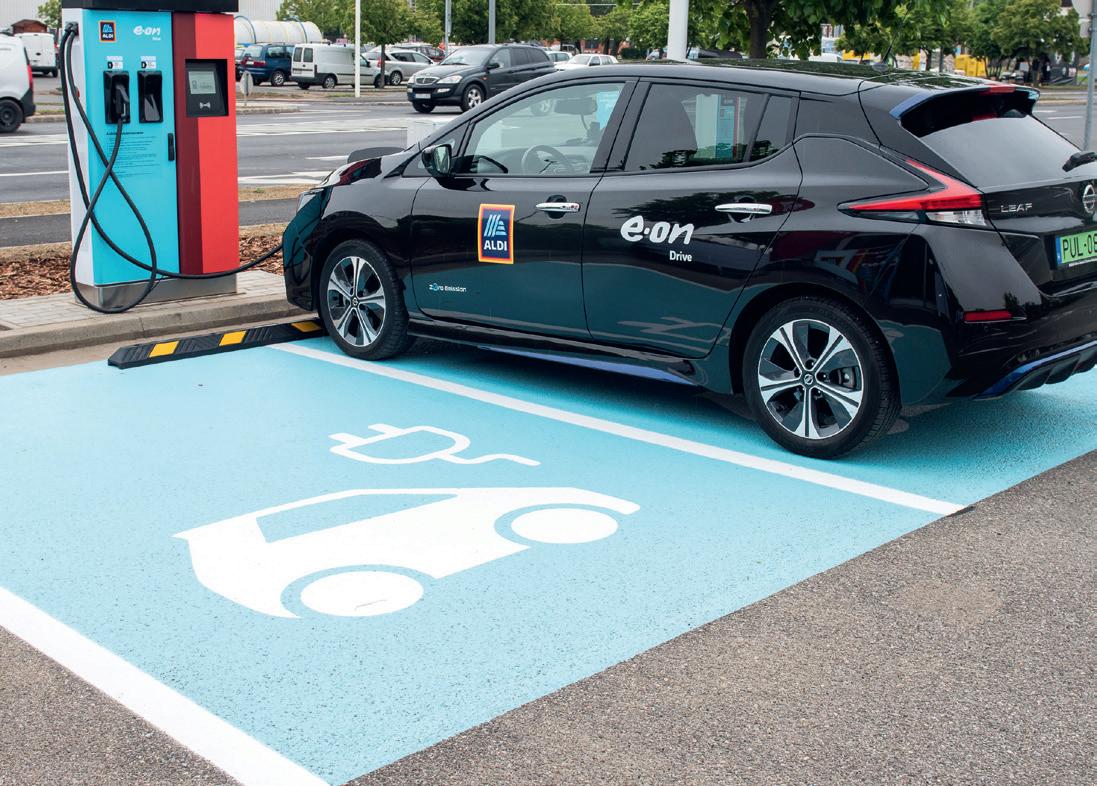
PROFIT INCREASE AT MAGYAR TELEKOM
Magyar Telekom's consolidated after-tax profit increased by 50.9% to HUF 19.7 billion in the third quarter of this year, exceeding analysts' expectations, and sales increased by 1.8% to HUF 167.7 billion.

In the first nine months of this year, Magyar Telekom's group-level sales remained unchanged at HUF 484.2 billion while after tax profit decreased by 3.7% to HUF 30.4 billion.
CEO Tibor Rékasi is quoted in the company's report published at the website of the Budapest Stock Exchange by saying that “Magyar Telekom continued to deliver a robust performance in the third quarter of 2020, remaining on track to meet the Group’s annual public targets
for 2020. As EBITDA generation improved, accelerated investment into the fixed network allowed Magyar Telekom to provide a further 100,000 households with fiber access.
As a first mover in the domestic market, Magyar Telekom has been offering gigabit speed on the 5G mobile network. Looking ahead, I believe Magyar Telekom is well placed to provide a broader range of content, enhanced connectivity and greater flexibility to our customers as these services become even more important in an uncertain environment affected by COVID-19.”
DECEMBER 2020 |DIPLOMACY & TRADE| www.dteurope.com 6
photo by SPAR.HU, SEMCORP, DÁVID HARANGOZÓ, MÁRTON FEJES/TRILITEFOTOSTUDIO, DEPOSITPHOTOS.COM
company briefs




DUNA HOUSE GROUP RETURNS TO GROWTH TRAJECTORY
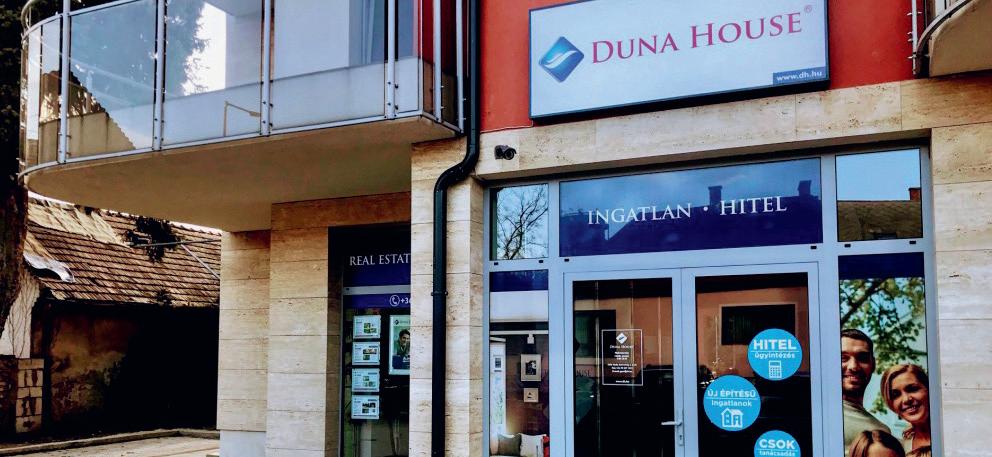


Real estate venture Duna House Group says its crisis-resistant model has exceeded expectations by returning to its previous growth trajectory in the middle of the COVID-19 pandemic. A report by the Group highlights that net sales revenue increased by 11%, cleaned core EBITDA (earnings before interest, taxes, depreciation, and amortization) increased by 14%, and PAT (profit after tax) more than doubled in the third quarter 2020 compared to the same period in 2019.

It adds that that all segments of the Group performed well in the third quarter 2020: real estate brokerage volumes in Poland and overall reached record highs during the quarter. Only its own office real estate brokerage in Hungary and the Polish financial product brokerage activities performed below expectations: the former due to the declining demand in downtown Budapest, the latter due to the somewhat weaker Polish housing loan market.

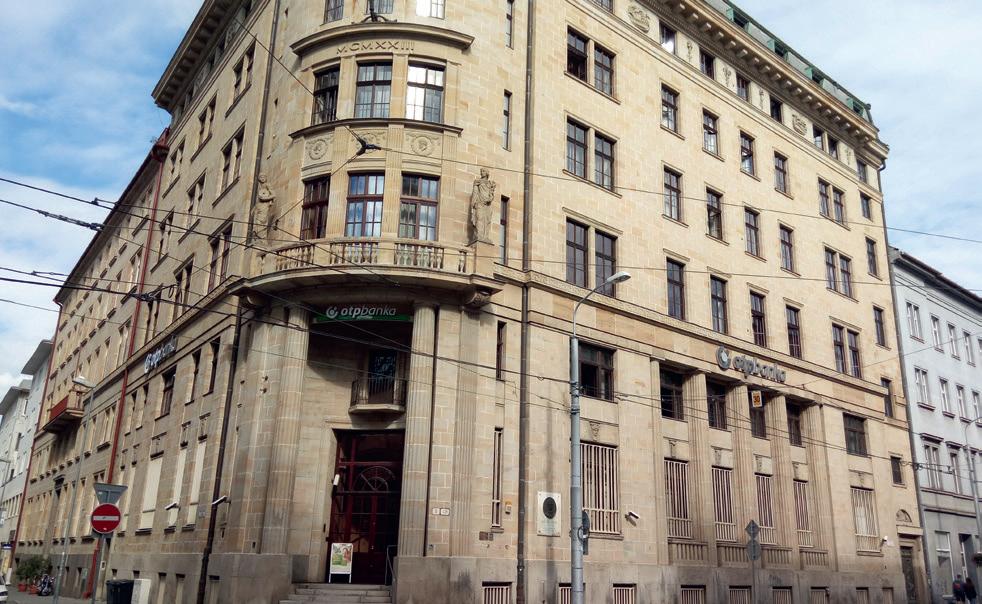
TESCO HUNGARY EXPANDS AT SHELL GAS STATIONS





Tesco's withdrawal from Poland is not an ominous sign, but rather a good opportunity for the Hungarian subsidiary to strengthen its regional role, Zsolt Pártos, CEO of Tesco Hungary, told the Hungarian daily paper Világgazdaság.
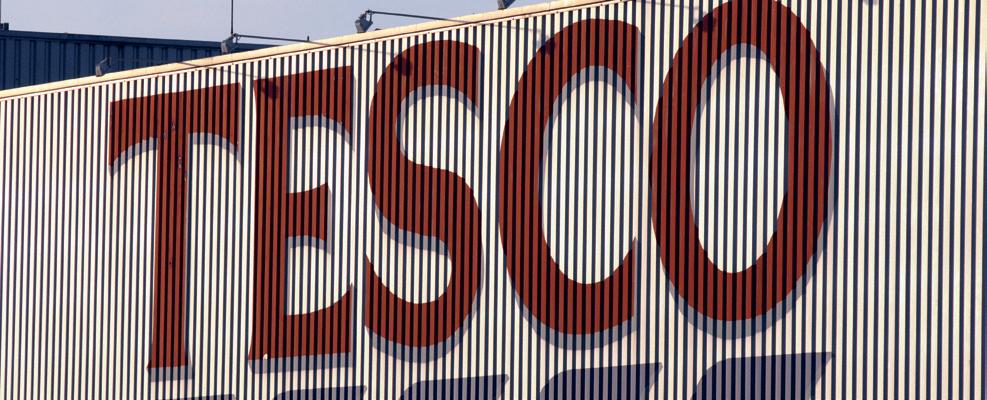

He also talked about the fact that although Tesco closed stores, new doors opened in parallel. "It is not the channel that matters but the location where we are present, where we try to make the potential in terms of purchasing power visible in business results. However, the opportunities provided by a location can change radically in 10-15 years, for example, if an office building or public institution opens its doors nearby," the company executive said. Tesco continues to expand at gas stations: they have already opened 19 mini-shops at Shell stations and new ones will open in the future, he added.
Hungary's largest commercial financial institution, OTP Bank has announced that the sale of its Slovakian subsidiary, OTP Banka Slovensko has been financially completed. According to the announcement, the transaction, based on the share purchase agreement signed with KBC Bank NV on February 17, 2020, has been financially closed, as a result of which the 99.44% shareholding in OTP Banka Slovensko was acquired by KBC Bank NV.




KBC Bank N.V. thus becomes the parent company of OTP Banka Slovensko (the remaining 0.56% share is owned by small shareholders). KBC subsidiary ČSOB Banka and OTP Banka Slovensko will first operate on the market as two sister banks, the next logical step will be a legal and operational merger into ČSOB Banka, which will strengthen ČSOB Banka's current position as a market square with a 12.6% market share.
OTP Banka Slovensko will continue, with the full support of ČSOB, to fulfill all its obligations on the banking market and to provide professional service of the highest quality to all its clients. It will be a priority during the entire merger process to ensure a smooth transition for clients and employees of OTP Banka Slovensko under a new brand, therefore, the business name of OTP Banka Slovensko will be maintained until the legal merger of the two banks.
AEGON LEAVES HUNGARY
The Dutch multinational life insurance, pensions and asset management company Aegon has agreed to sell its business in Hungary, Poland, Romania and Turkey to Vienna Insurance Group AG Wiener Versicherung Gruppe (VIG). "This transaction will simplify Aegon's footprint and strengthen our balance sheet", Aegon CEO Lard Friese said. "We are sharpening our strategic focus and are concentrating on those countries and business lines where Aegon can create most value. I would like to thank our employees in Hungary, Poland, Romania and Turkey for their significant contribution to Aegon over the years. We believe that our businesses will benefit greatly from the vast experience of VIG, a leading insurance group in the region."
The handover and invoicing of the MyCity Residence residential real estate project (in the Hungarian capital), which is 50% owned by the Group, successfully began in Q3 2020. 45% of the profit from the sale of the apartments was recognized during the quarter, while the remaining profit of HUF 329 million is expected to be recognized in the following quarters. The report also notes that the planned completion of the Forest Hill residential park in Budapest, 100% owned by the Group, is postponed to April 2021 due to the intensified labor shortage caused by COVID-19, and quality improvement works on construction jobs completed by the previous general contractor.
This is not the first time that Tesco has chosen gas stations. The chain first opened its own gas station in 2004 and in the following years, set up a network of more than 50 of such stations. Then, in February 2009, Tesco announced that Shell would operate the Tesco gas stations. Under an agreement between the two companies at the time, Tesco would lease the stations for 15 years, and Shell would be responsible for fuel supply and the operation of the shops. In May 2017, Tesco announced that it considered the Shell collaboration to be successful but due to the changed market environment and their differing strategic ideas, the two companies ended the cooperation. However, in January this year, the two companies entered into a partnership again, resulting in the establishment of 19 gas station shops.
According to a press release by Aegon, the proceeds amount to EUR 830 million and represent a multiple of 2.6 times the book value on June 30, 2020. This will result in an increase in IFRS (International Financial Reporting Standards) equity of EUR 505 million of which EUR 362 million will be recognized as book gain based on the balance sheet position on June 30, 2020. The total net underlying earnings of Aegon's businesses in Central and Eastern Europe amounted to EUR 54 million for 2019, implying a transaction multiple of 15 times net underlying earnings. As a result of the transaction, the Group Solvency II ratio is estimated to improve by approximately 8 percentage points.

The proceeds will be upstreamed to the Group and increase Aegon's financial flexibility to execute on its strategic priorities, including deleveraging.






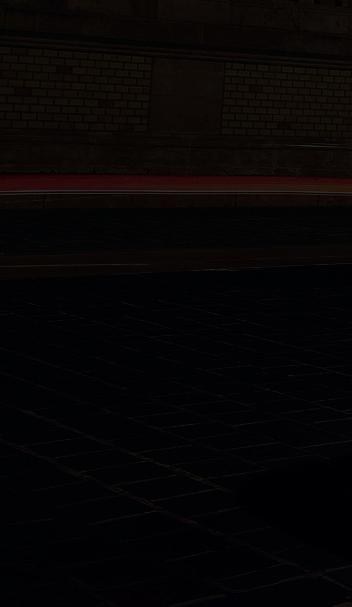
www.dteurope.com DIPLOMACY & TRADE| DECEMBER 2020 7 photo by WIZZARD/WIKIPEDIA, DUNA HOUSE, DEPOSITPHOTOS.COM, DR. JÁNOS KOROM
OTP SELLS SLOVAKIAN SUBSIDIARY TO KBC
C M Y CM MY CY CMY K Diplomacy-n-Trade.ai 1 2017. 02. 27. 11:22:30
JUST ANOTHER BRICK IN THE GREAT WALL?
PACIFICIC TRADE PARTNERSHIP WITHOUT THE UNITED STATES
BY TAMÁS MAGYARICS
It seems that China is in the long game. In fact, there is nothing new in it; the Chinese sense of time, and their concept of history are somewhat different from the ‘now’ approach of Western societies. While the Western leaders, either in the U. S. or in Europe, do not seem to have any clear vision about the future, and have tied themselves down with issues of secondary importance, leaders in Beijing have been patiently and painstakingly establish new and new outposts using ‘soft power’ in faraway places, while closer to home, they have been pursuing much more aggressive economic, foreign, and security policies. They are paying close attention to events in the U.S. above all else; they, as every great power in history, respect strength, and – for them – the U.S. is the only peer power in the world. Of course, they pay lip service to the equality of nations in principle, but they know that it is the U.S. that is posing any real challenge to their power. Therefore, their strategic goal is to weaken the U.S. directly and indirectly in all walks of life.
Putting another BRIck in the wall
China’s major tool to balance the U.S. globally is the Belt and Road Initiative (BRI), which is serving obvious strategic and political purposes despite Beijing’s claim of it being exclusively economic in nature. China is also a member of the BRICS, but this loose forum for cooperation has not yielded real tangible results, so far. With the Regional Comprehensive Economic Partnership (RCEP), China is attempting to use a regional multilateral framework challenging the U.S. positions in the Asia-Pacific region. In fact, there emerged an opening for the Chinese when the Trump administration abandoned the Trans-Pacific Partnership (TPP) – in reality, even large segments of the Democratic Party were not that happy with the proposed deal and, therefore, the Obama administration did not make extra efforts to have it formalized.
China was not to be a member of the TPP, but its neighbors were to be. China welcomed Donald Trump’s decision to – at least – shelve TPP; Beijing already feels threatened strategically encircled by the allies of the U.S. in the region. RCEP offers a sort of way out of this strategic encirclement – if it is really implemented.
The RCEP
The idea of the RCEP was first conceived in 2011 at the ASEAN summit in Bali, Indonesia, and signed on November 25, 2020. It is likely to come into force in 2022 or so, after the fifteen countries which constitute the organization have ratified the necessary documents. The goals of the organization are not as ambitious as were those of the TPP; in general, they are intended to reduce tariffs and the bureaucratic procedures in handling one another’s goods and services. In reality, some of the tariffs are minimal even at the moment, but cutting the remaining ones is expected to boost not only the regional economies, but also the global economy. (It is worth mentioning that India has pulled out of the
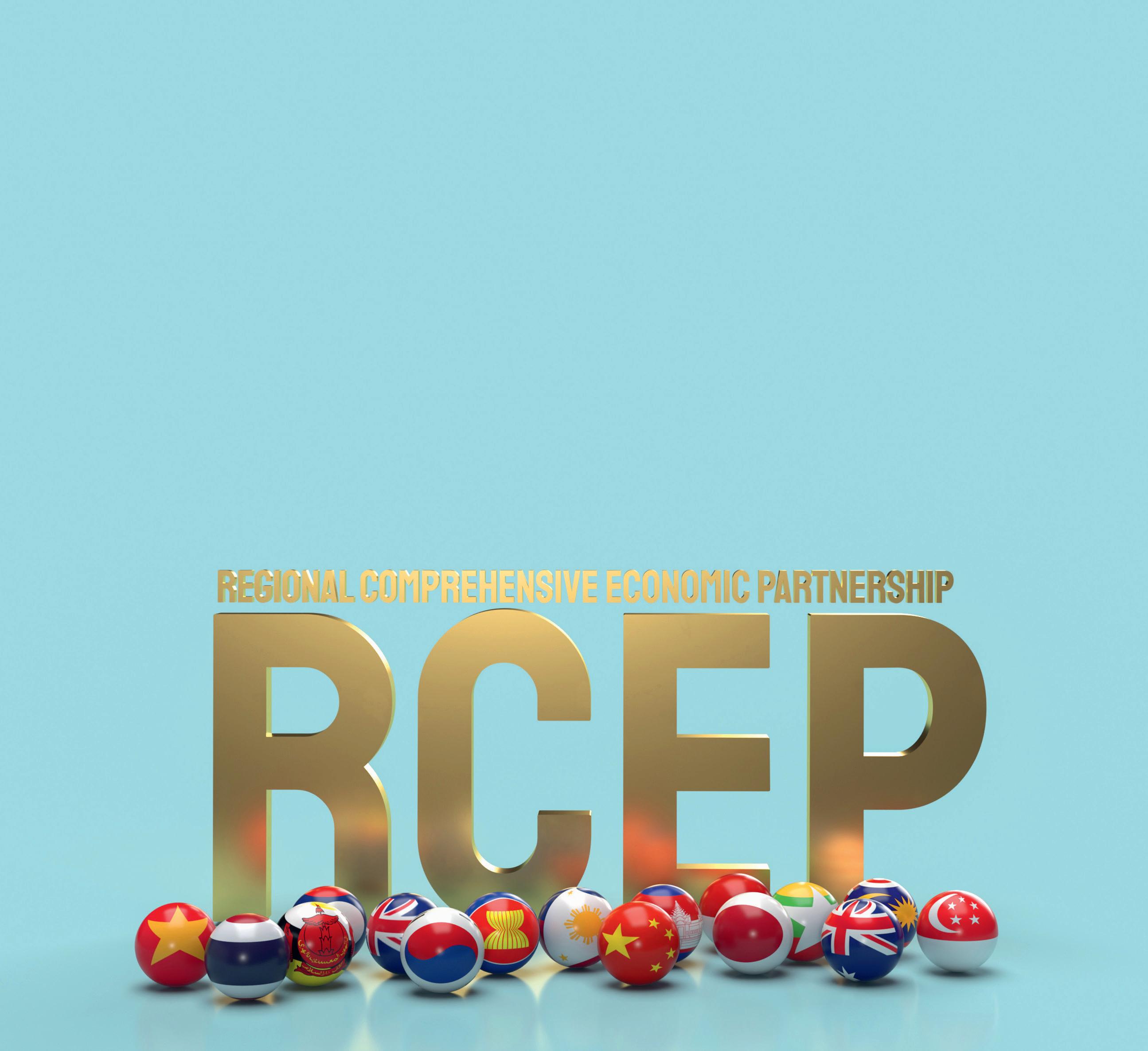
proposed trade deal because it feared that the lower tariffs would hurt its manufacturing sector.) As for the latter, forecasts vary around USD 180-200 billion annually, adding some 0.2% to the economies of the member states which account for some 30% of the world’s population (2.2 billion people), and 30% of the global GDP (USD 26.2 trillion). If realized, the RCEP will be the largest trade block in history.
Delicate conditions omitted
There are other ’firsts’ in the RCEP. It is the first regional multilateral trade organization that China has joined. The arrangements suit China just fine: missing are the environmental protection, human rights and labor regulation measures which were parts of the TPP. It is true that intellectual property protection is written into the RCEP as well, but it is a different question whether the partners in the organization will be able to force the Chinese to observe the obligations. The RCEP is also the first organization that has brought China, Japan, and South Korea into one free trade
deal. So far, these countries have had deepseated mutual suspicions harbored against each other, stemming from their turbulent histories, and their ongoing territorial disputes. It would be too optimistic and unrealistic to expect that all the outstanding problems, geopolitical, economic, territorial, and ideological could be wished away overnight, but some sort of structured dialogue has started at least among them.
"Beware of Greeks bearing gifts"
It would be premature to say who would win and who would lose with the RCEP. China seems to be a winner, insofar as it becomes the senior partner in a multilateral trade deal, which incorporates Southeast and Northeast Asia alike. The RCEP is likely to strengthen Beijing’s negotiating positions vis-á-vis the U.S. and the EU as well. The smaller economies in Southeast Asia are also expected to benefit from the closer economic cooperation, though they should remember Virgil’s classic line from the Aeneid:”Timeo Danaos et dona
ferentes” ["Beware of Greeks bearing gifts"]. At the moment, the U.S. seems to be one of the losers: a trading block has been established under Chinese domination in a region that is an extremely sensitive one in the rivalry between the two strongest nations in the world. The milliondollar question is what the incoming Biden administration is planning to do. The Presidentelect has promised to work more closely with the U.S. allies than President Trump has done, and it may mean focusing on the Quad (the U.S., Australia, India, and Japan), and possibly to breathe some life into the Free and Open IndoPacific (FOIP) plan and/or into the Comprehensive and Progressive Agreement for Trans-Pacific Partnership (CPTPP). Washington should make up its mind the sooner the better: China seems to be busy erecting another wall – this time a virtual one in its neighborhood, and the RCEP may as well be an important brick in this virtual wall.
Tamás Magyarics is a foreign policy analyst
DECEMBER 2020 |DIPLOMACY & TRADE| www.dteurope.com analysis 8 illustration by DEPOSITPHOTOS.COM

































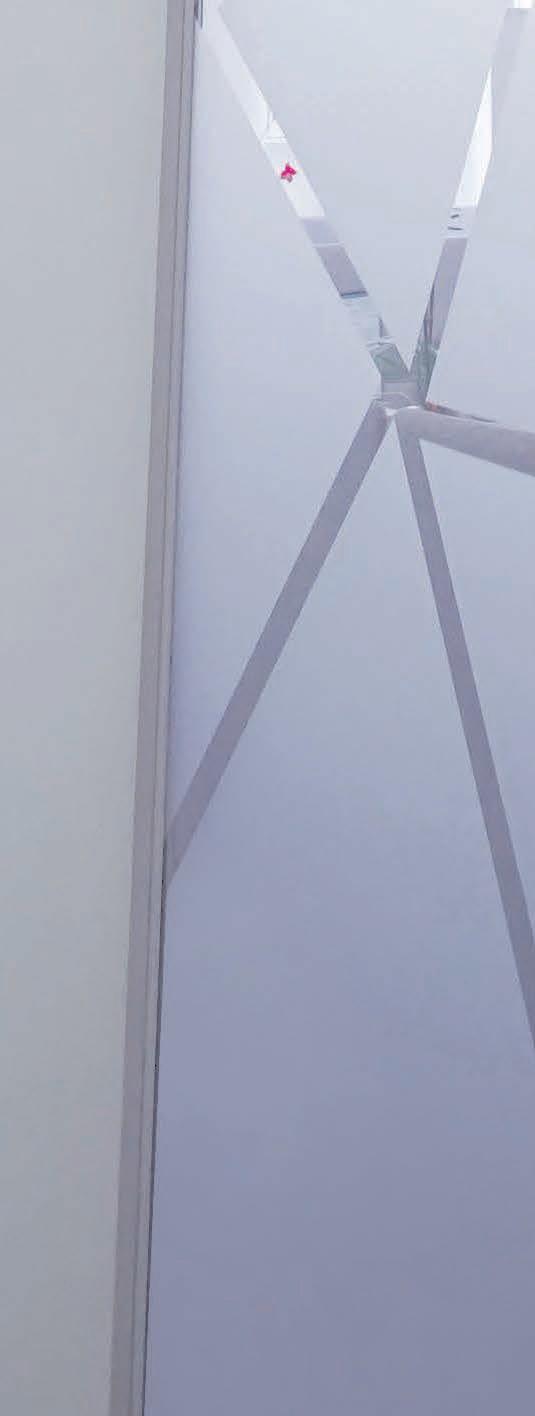










TAKENAKA EUROPE GmbH HUNGARY BRANCH OFFICE Architecture / Engineering / Construction www.takenaka.eu info@takenaka.hu
ASPIRING TO FINE FORM for a future generation
FOR A STRONGER AND MORE INNOVATIVE EUROPE

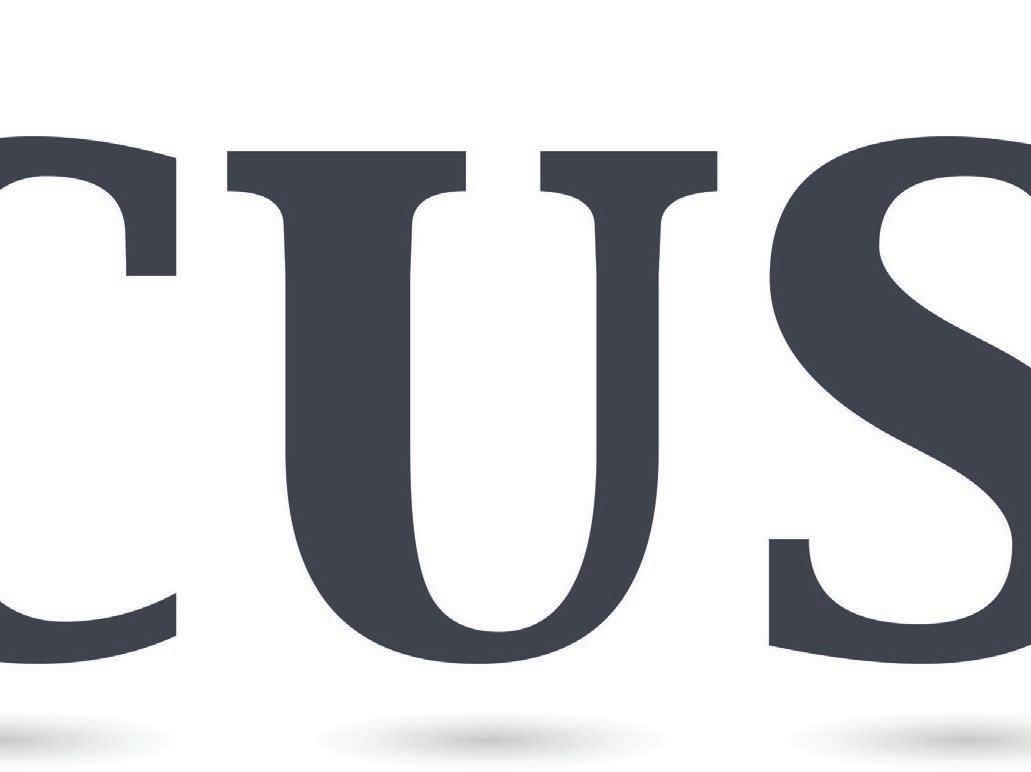
 BY SÁNDOR LACZKÓ
BY SÁNDOR LACZKÓ
“The German-Hungarian relationship rests on a solid foundation. The thread of the conversation never broke off in the face of the differences of opinion,” Ambassador Haindl points out to Diplomacy&Trade.
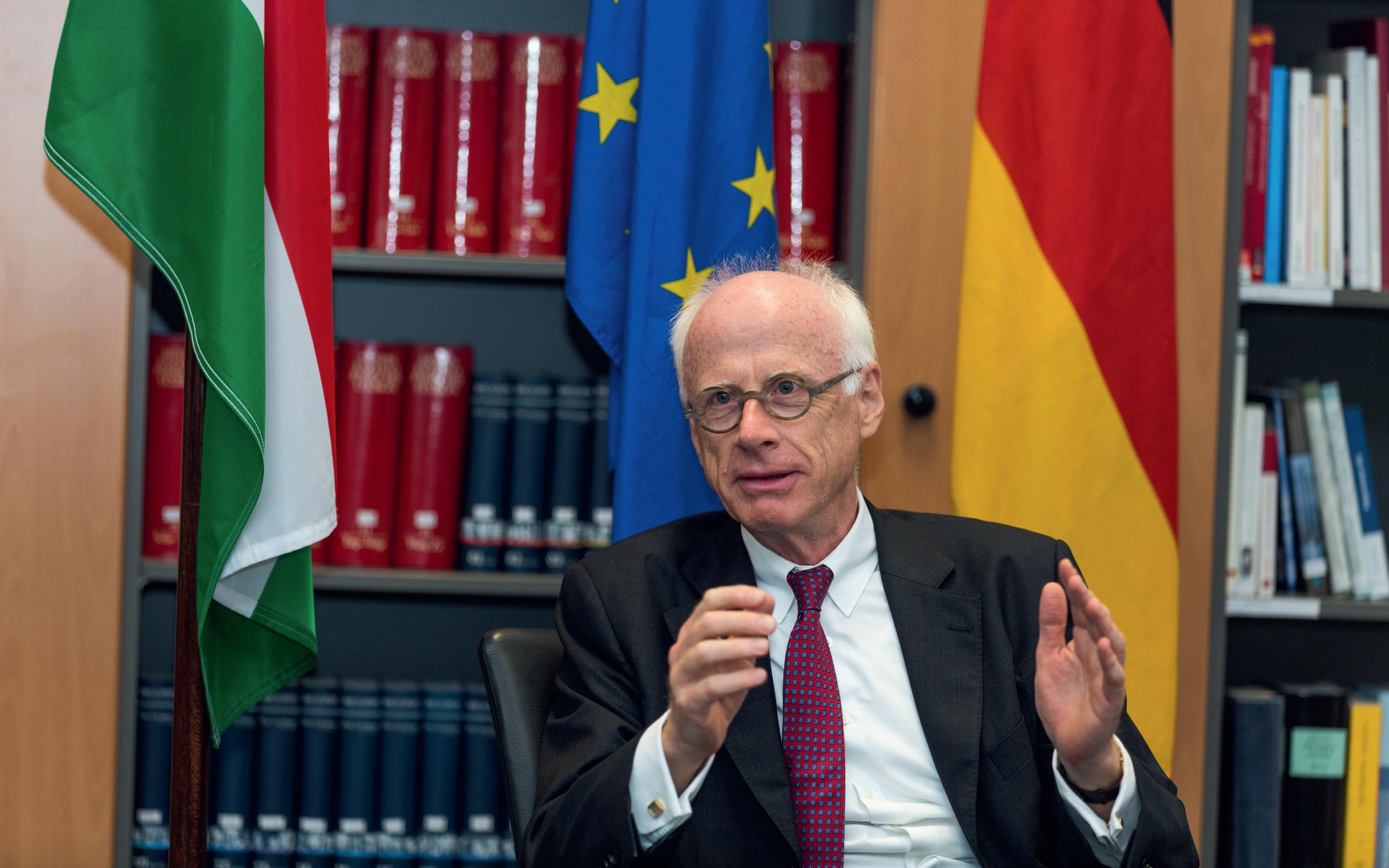
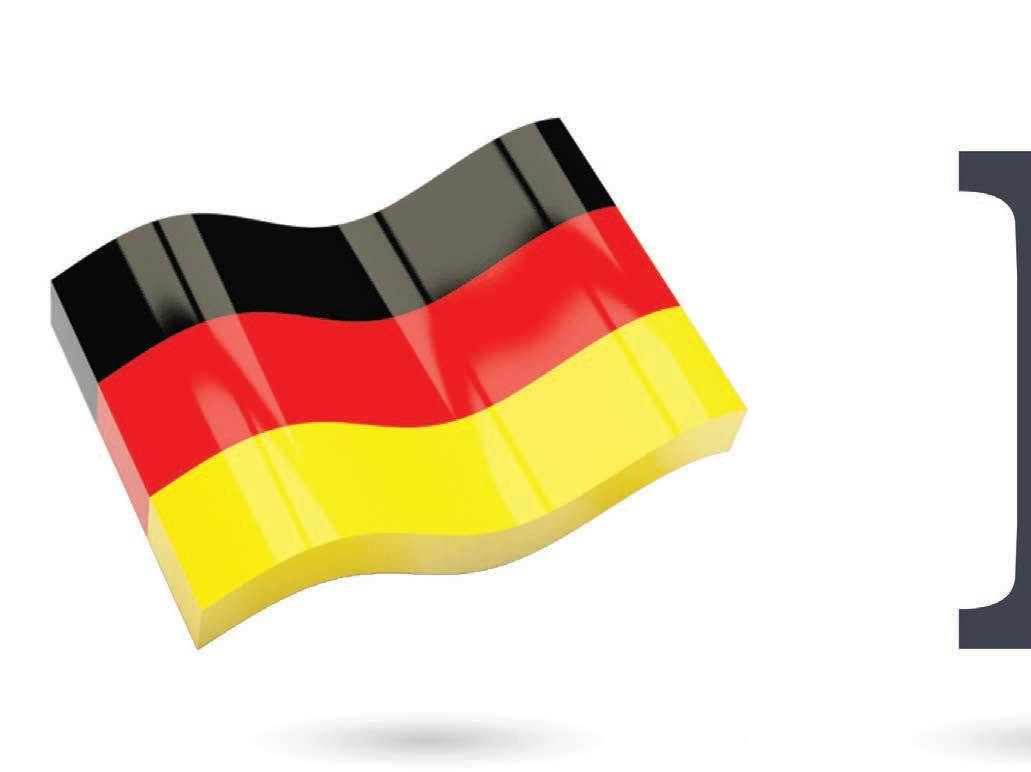
Describing the current situation, he highlights that “our societies have been heavily affected by the COVID-19 pandemic in the past few months. The impacts of this epidemic have led to a severe recession whose dimensions might reach those of the financial crisis in 2008/2009. Needless to say, that the economic relations between Germany and Hungary are influenced by the pandemic, too.” The economic relations between Hungary and Germany are traditionally very intense and Germany is Hungary’s most important trading partner
with about one quarter of Hungary’s foreign trade done with Germany. The most important German export goods are electrical and electronic devices, motor vehicles, automotive components, machines and chemical products. Similarly, the most important Hungarian export goods are motor vehicles, automotive components and electrical and electronic equipment. According to the Ambassador, the significance of the economic relations is very well illustrated by the sum of German investments in Hungary. Today, 3,000 companies with German ownership background employ roughly 250,000 Hungarians, and the German investment community accounts for a quarter of the foreign investment to Hungary. The latest available figures suggest that in 2019, Germany made direct investments in Hungary amounting to EUR 1.1 billion. Thereby, the total amount of German investments has risen to around
DECEMBER 2020 |DIPLOMACY & TRADE| www.dteurope.com 10 photo by NÓRA HALÁSZ, DEPOSITPHOTOS.COM
INTERVIEW WITH GERMAN AMBASSADOR JOHANNES KONRAD HAINDL HUNGARY GERMANY AREA 93,028 sq km 357,022 sq km country comparison to the world 110 64 POPULATION 9,919,128 (July 2014 est.) 80,159,662 (July 2020 est.) country comparison to the world 90 19 POPULATION GROWTH RATE -0.21% (2014 est.) -0.19% (2020 est.) country comparison to the world 214 209 BIRTH RATE 9.26 births/1,000 population8.6 births/1,000 population (2020 est.) country comparison to the world 214 215 LIFE EXPECTANCY AT BIRTH 75.46 years 81.1 years country comparison to the world 93 37 NET MIGRATION RATE 1.34 migrant(s)/1,000 population 1.5 migrant(s)/1,000 population (2020 est.) country comparison to the world 55 54 GDP - PER CAPITA (PPP) $24,300 (2014 est.) $50,800 (2017 est.) country comparison to the world 73 27 UNEMPLOYMENT RATE 7,1% (2014 est.) 4.98% (2019 est.) country comparison to the world 77 75 TELEPHONES - MOBILE/CELLULAR 11,580,000 (2012) 103,090,116 country comparison to the world 67 16 AIRPORTS 41 (2013) 539 (2013) country comparison to the world 104 12 Source: World Factbook
EUR 18 billion. More than a third of this sum was invested in the automotive sector. The latter can therefore be seen as the most important branch of the German-Hungarian economic relations. The Ambassador also finds it important to mention that in 2019, Hungary established its first European defense project (PESCO) in partnership with Germany: an Integrated European Joint Training and Simulation Center (EUROSIM).
COVID-19 impact
Throughout the second quarter of 2020, German exports to Hungary shrank by about 30% compared to last year’s figures while the Hungarian exports to Germany decreased by approximately 25%.

Fortunately, Hungarian exports to Germany started to pick up in the third quarter by a modest 3%, however, imports from Germany were still 5% below the previous year’s level. In Hungary, it was particularly the important automotive and supply industry that were severely affected and interruptions of the production could be observed in all Hungarian car factories. For instance, Audi Hungary suspended its production at the end of March 2020 and nearly simultaneously, Mercedes Benz took the same measure in its plant in Kecskemét. Aside from that, automotive suppliers such as Bosch were affected by the pandemic. Due to declines in orders or missing supply of components, the production process had to be reduced or completely ceased.
However, Ambassador Haindl notes, the automotive industry had already been weakened before the COVID-19 pandemic. In Germany, the years 20082018 are regarded as the ‘golden decade’ of the automotive industry, but since 2019 the world market for motor vehicles has been declining. The pandemic has increased this effect since it hit a sector, which was undergoing an adjustment process. Nonetheless, there is reason to hope, he says. “It seems the worst is overcome. Indeed, there was a decline in production in the Hungarian automotive and supply industry for the first quarter of 2020 of about 25%. However, the downward trend is not as strong. Most of the automotive plants have restarted their production, although some of the suppliers partly on a reduced level. Most of them report a rising demand.” He adds that furthermore, a possible relocation of the production from Asia to Europe (‘nearshoring’) could benefit Eastern Europe but it remains to be seen if this process would eventually start. “So far, there is no concrete evidence supporting a possible nearshoring effect. But investment projects such as the construction of BMW’s plant in Debrecen are said to be continued, albeit with delay.”
Focus on electro-mobility
The Ambassador highlights the expansion of electro-mobility as an important field of GermanHungarian cooperation in the automotive industry. “Hungary has recently established a program in order to promote the sales of electric vehicles by means of state subsidies. Such subsidies were already provided in 2016 and 2018 by the Hungarian government. Germany also offers state subsidies in order to make the purchase of electric vehicles more attractive. In July 2020, these grants were raised. Since then, customers can benefit from
german focus
and complex administrative procedures concerning the sales of goods or services in other Member States or unequal access to public contracts. "The EU’s unified economic area without internal borders builds the basis of our prosperity, social security and cohesion. For this reason, superfluous obstacles must be abandoned. SME’s competitiveness should be increased, for example, by the dismantling of bureaucratic obstacles and legislation in their favor. Another aspect is the mobility of the future. The EU needs to achieve this goal in a sustainable, innovative and interconnected manner. Thereby, the environmental challenges of our age have to be addressed while safeguarding the competitiveness of the European transport sector," he adds.
Cultural relations
subsidies in amounts between EUR 5,625 and 9,000 when purchasing new electric vehicles. In September 2020, 8% of the new registrations were pure electric cars in Germany. Hybrid cars had a share of around 20%, whereby plug-in hybrid cars accounted for approximately 8%. Consequently, more than a quarter of the new registrations possessed an alternative drive. It is forecast that by 2022, one million electric vehicles will drive on German roads.”
(MFF) 2021–2027 are likely to be important events in the presidency of the German Council. The Federal Council Presidency has been working intensively on a solution over the past weeks and months.

The German Presidency
In the second half of 2020, the rotating Presidency of the Council of the European Union is held by Germany. On July 1, 2020, the Federal Government took over the presidency of the Council of the European Union (EU) for the following six months and with it the challenge of providing important impetus for European politics and the development of the EU. Germany faced major challenges. These concerned important negotiations on Brexit, the multiannual financial framework and the European asylum and migration policy. These have been tasks, the solution of which has been made structurally and in terms of content considerably more difficult and influenced by the management of the global Covid-19 pandemic. The adoption of the post-coronavirus recovery instrument ‘Next Generation EU’ and the political agreement on a multiannual financial framework
Another goal of the Presidency was overcoming the COVID-19 pandemic permanently, including the economic recovery and the promotion of a stronger and more innovative Europe. "Germany places measures to overcome the social and economic consequences of the COVID-19 pandemic in the center of the efforts. A decisive precondition for recovery in Europe is the economic recovery of the European enterprises. Their resilience and competitiveness should be improved. Strategic European value chains should be strengthened. These goals can be achieved by tailoring regulations concerning public procurement more effectively to future emergencies and economic crises. Besides, preventing market distortions caused by statecontrolled and subsidized companies from third countries is important. European companies which could be targets of takeovers have to be protected. This applies to both large-scale industrial production and to small and medium-sized companies (SMEs). Therefore, Germany attaches high importance to keeping markets open and to enhancing trade and investment on the basis of international, enforceable rules. Protectionism and trends targeted towards re-nationalization have to be strongly opposed," Ambassador Haindl says.
With regards to the latter idea of a stronger and more innovative Europe, he stresses that it is essential that Europe achieves sovereignty in the digital domain. That means having state-of-the-art skills in the field of key digital technologies. A wellfunctioning single market, also in digital matters, is an important precondition for ensuring the EU’s competitiveness and for its economic recovery after the COVID-19 pandemic. Moreover, remaining unjustifiable barriers in the single market have to be eliminated. Examples of such barriers are extensive
As the Ambassador highlights, cultural ties and educational exchange are important elements in bilateral relations. The German language plays a significant role in education, society and business in Hungary. In the field of higher education, German-Hungarian cooperation can look back on a centuries-old tradition. Andrássy University Budapest, which was founded in 2001, is the only university outside the German-speaking countries that operates entirely in German. It is regarded as one of Hungary’s universities of excellence. Moreover, the Goethe Institute in Budapest (since 1988), the Thomas Mann Gymnasium (since 1992), the Central Office for Schools Abroad and the Institute for Foreign Relations are located in Hungary.
Two important German foundations – the Konrad-Adenauer-Stiftung and the FriedrichEbert-Stiftung – maintain offices in Budapest and contribute through conferences and exhibitions and seminars to strengthening GermanHungarian relations. The German Academic Exchange Service has sent several Germanspeaking lecturers and language assistants to Hungarian universities and colleges. The Alexander von Humboldt Foundation awards research grants to Hungarian scientists, sponsors scientific conferences and donates equipment to scientific institutions. In Germany, the Collegium Hungaricum Berlin and the Hungarian cultural institute in Stuttgart play a similar role. There are also various city partnerships. The German minority living in Hungary also contributes to the colorful network of German-Hungarian relations and, with 186,000 people, is the second largest national minority in Hungary. In order to commemorate the many displaced Hungarian Germans, Hungarian parliament decided in December 2012 to make January 19 a day of remembrance for the deportation of ethnic Germans from Hungary following World War II. On the science front, the Joint Declaration on the Further Development and Intensification of Cooperation in Scientific Research and Technological Development of 2004 forms the basis for collaboration. Examples of such collaboration include the Fraunhofer Project Center for Production Management and Information Technology in Budapest, its spinoff joint firm EPIC InnoLabs, and the site of the European laser research project Extreme Light Infrastructure Delivery Consortium, with German investment, in Szeged, SE Hungary.
11 www.dteurope.com DIPLOMACY & TRADE| DECEMBER 2020
german focus
Lidl Supplier Handbook
The Lidl Academy Plus, launched now as part of the ‘Lidl for Hungarian Suppliers’ program, is a multi-stage educational program providing a complex service, where supplier partners have the opportunity to attend four professional lectures in a year focused on four product groups of fresh goods – such as meat and meat products, bakery products, milk and dairy products as well as fruit and vegetables – and personally consult with market representatives, ask questions on topics that concern and interest them. The novelty of the program is the comprehensive professional publication of nearly 80 pages, based on practical aspects, the Lidl Supplier Handbook, which helps the prospective partner on how to become a partner of a store chain with nationwide coverage. It covers product offerings, pricing, administrative tasks and even efficiency gains. In addition, a weekly newsletter provides first-hand information on current issues affecting the fresh goods market, so that the knowledge and support gained through this will make the participants the most valuable and prepared suppliers for the store chain.
Multi-level educational platform












DOMESTICVALUES IMPORTANTATLIDL
The training focuses on the development of prospective partners, where market participants joining the program can not only participate in sectorfocused professional presentations and forums, but also receive a supplier handbook unique on the market as part of the training.

Lidl for Hungarian suppliers
Domestic values have always been important for the store chain, so, in 2013, it launched the ‘Lidl for Hungarian suppliers’ program with the aim of increasing the proportion of high-quality Hungarian products in its selection offered to customers, thus supporting domestic companies in appearing both in Hungary and abroad. As a result of the effort, the store chain currently has more than 3,300 Hungarian products from almost 500 domestic companies to offer. The company is proud that the share of Hungarian products in its domestic stores is currently close to 60%, the largest proportions can be found in wine (79%), bakery products (65%) and fruit and vegetable (66%). The aim is to increase that number even further.


Hungarian products are also successful as export items, currently 730 products from 490 Hungarian suppliers are available in 24 countries. Thanks to the ‘Lidl for Hungarian Suppliers’ program, the company's export activity is growing significantly year by year, according to which the export
turnover of Hungarian suppliers through the Lidl store chain increased by almost 20% in the 2019 financial year compared to the previous year. Lidl has been working for many years to find the best Hungarian producers and suppliers and to establish long-term partnerships with them. Therefore, within the framework of the program, the Lidl Academy launched a series of events in 2016, which was attended by representatives of nearly
500 domestic companies that learned about the opportunities offered by Lidl in relation to their own products. Thanks to the success of the program and the series of events, many new business relationships have been established, so the store chain now works with more than 490 domestic suppliers and the share of Hungarian products on store shelves is almost 60%.
“We believe that one of the best strategic cooperation opportunities for domestic producers is if they can call themselves suppliers of the Lidl store chain, which currently has 185 stores with nationwide coverage, as the longterm relationship provides them with a stable source of revenue and continuous development. Lidl Academy Plus is a multilevel educational platform where Hungarian small and medium-sized companies have the opportunity to acquire the necessary knowledge and network of contacts. As a key player in the Hungarian retail sector, our goal is to support Hungarian suppliers and to promote the self-sufficiency of the Hungarian food industry,” Judit Tőzsér, Head of Corporate Communications at Lidl Hungary said.
DECEMBER 2020 |DIPLOMACY & TRADE| www.dteurope.com
12 photo by LIDL HUNGARY
LIDL HUNGARY OFFERS STRATEGIC COOPERATION OPPORTUNITIES FOR DOMESTIC PRODUCERS
In order to support domestic producers and further expand its supplier partner range, Lidl Hungary is launching a complex educational program called ‘Lidl Academy Plus’.
german focus
A CHAMBER DRIVEN BY SERVICE MENTALITY
INSTITUTIONAL BUSINESS RELATIONS BETWEEN GERMANY AND HUNGARY DATE BACK A CENTURY
It was just two years ago that the German-Hungarian Chamber of Industry and Commerce (DUIHK) had its 25th anniversary and this year, the organization has an even more prominent anniversary to celebrate: the first GermanHungarian Chamber of Commerce, the DUHK was established a hundred years ago.
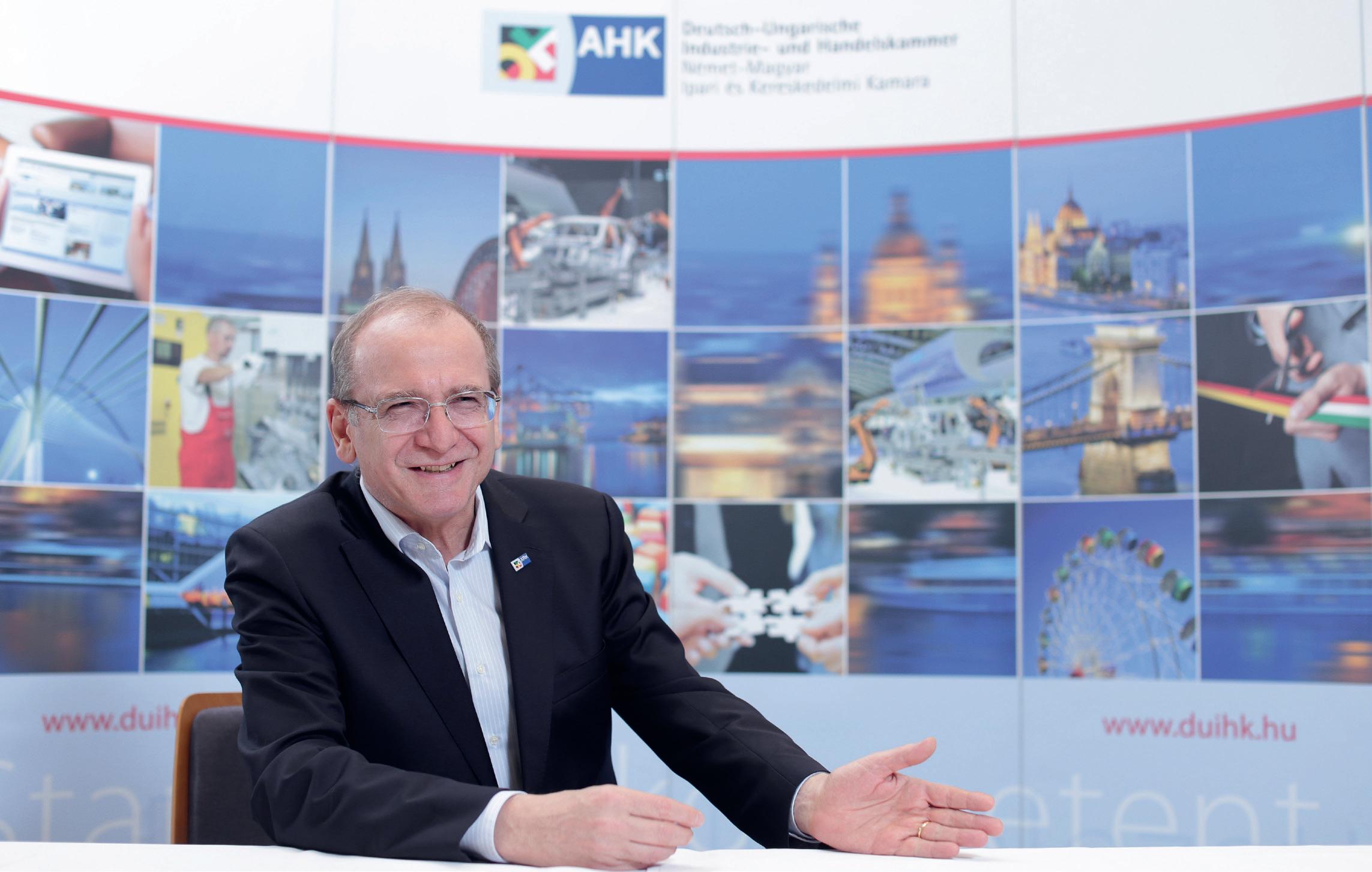
As the CEO of DUIHK, Gabriel A. Brennauer tells Diplomacy & Trade, strong historical ties create mutual trust and understanding and this fully applies to the German-Hungarian relations. “We are proud that Budapest was among the first capitals to host a German bilateral chamber at the beginning of the last century. Some key principles of the 1920 Chamber are still valid in 2020. On the one hand, we are an independent organization and abstain from any political engagement. On the other, our activities are driven by our service mentality: we seek to support companies in their daily and strategic business operations with tailor-made, practical solutions.” Although no bilateral chamber was allowed after WWII until the regime change, German-Hungarian economic ties remained strong even under the communist regime. In 1989, the combined East- and WestGerman trade with Hungary equaled that of the Hungarian-Soviet trade, and already in the 1970s, a German multinational was the first Western company to set up a joint venture in Hungary. “This prehistory helped a lot to quickly rebuild economic ties after 1990 which laid the ground for the extensive bilateral trade and investment co-operation we built up until today,” he adds.
Coping with the epidemic situation
Unfortunately, 2020 is not only a year of anniversaries but also of the of the COVID-19 pandemic. “As a Chamber, one of our key assets is to be a networking platform for companies among each other as well as with key decision makers in the administration. Therefore, the restrictions imposed to fight the pandemic hit our organization hard, because after all, we could not organize physical meetings anymore. However, we managed to quickly transform many of our services into new formats suitable for the online-world. Hopefully, many of these new tools and instruments will help to optimize our services even after the end of the pandemic,” the CEO highlights.
An important part of the activities of the GermanHungarian Chamber of Industry and Commerce was to inform companies about latest changes in regulations in Hungary and Germany, about travel restrictions, rules for international transports or available state subsidies. They also conducted intense consultation with the government since early March. Many suggestions and proposals from DUIHK and other associations had been taken up and implemented by the government fast, among others the introduction of wage subsidies for those employees, which suffered reductions in their working hours.
Gabriel A. Brennauer stresses that German companies, like the Hungarian and other
international companies, face multiple challenges due to the pandemic. On the one hand, extensive measures were needed – and taken – to protect the health of their employees. From a business perspective, many firms face severe difficulties in production due to disturbances in international supply chains. These difficulties have been overcome at least partially during the last few months, but new waves of the pandemic could hit companies again. Finally, the pandemic also cut back international and domestic demand in many areas, which will not recover very quickly, he says.
“Our and others‘ latest surveys show that returning to pre-crisis levels is expected by the majority only from the second half of 2021 onwards, rather in 2022. Therefore, the economic impact of the epidemic will be felt further for quite a long time, even if the much-awaited vaccine should be available soon.”
Pushing the accelerator pedal
Several big German car manufacturers are present in Hungary. As to how much the GermanHungarian automotive scene has changed in the past two years since the previous German
Focus in Diplomacy&Trade, the DUIHK CEO is of the view that during the past few years, climate change related issues gained much momentum in national and international politics. The automotive industry is affected strongly by new climate goals and regulations. “Given that this industry plays an outstanding role in Hungary as well as in Germany, companies have to realign their strategies, to re-think their product and service portfolio as well as their productions chains. This process will last many years, but recently, it has accelerated notably. German carmakers and the extensive range of suppliers will also undergo fundamental changes, but their tremendous know-how should warrant that they can cope with these challenges and safeguard their international competitiveness.”
Partnerships
Gabriel A. Brennauer stresses that DUIHK seeks to maintain constructive relationships with all players relevant for German-Hungarian business ties and for the general business climate in Hungary. A very important partner is the Ministry of Innovation and Technology (ITM), which is
in charge of training issues, of assignment of EU-funds, energy, transport and many others. The Ministry of Foreign Affairs and Trade is a natural partner, when it comes to international trade issues, but DUIHK also co-operates closely with the Hungarian Investment Promotion Agency (HIPA), i.e. when new investors should be informed and supported as they are looking for investment opportunities in the country. Also, the Finance Ministry is an important partner, with consultations obviously focusing mainly on taxation issues.
Training to German standards
Education and vocational training has been in the focus of the German-Hungarian Chamber of Industry and Commerce for decades “because successful business operations hinge on well skilled and motivated employees and managers. Today, we focus on three dimensions of education and training. Firstly, we are organizing dual training courses in or for companies in Hungary, according to German standards. Further, we organize trainings and workshops for managers and specialists. A highly successful course is the European Energy Manager (EUREM) training, which is based on an international scheme, but we also offer special courses for production supervisors, procurement specialists or HR managers. Finally, we provide consultancy for the government on the further modernization of Hungarian training system regulation. The DUIHK is a permanent member of National Innovation Council for Vocational training. Furthermore, we are partner in a pilot-project between the ITM and Siemens, which shall reshape the vocational training for industrial professions according to the actual needs of the companies and latest professional knowledge, and which will serve as a blueprint for modernizing other curricula in the upcoming years,” Gabriel A. Brennauer concludes.
www.dteurope.com DIPLOMACY & TRADE| DECEMBER 2020 13
photo by DÁVID HARANGOZÓ
german focus
“WEPLAYTHE SAMELANGUAGE”
GERMAN TELEVISION PERSONALITY APPEARS ON THE JURY OF HUNGARIAN CLASSICAL MUSIC TALENT SHOW
The internationally expanding Virtuosos classical music television talent search began its sixth season this November. This time, young people from the four Visegrád countries and Serbia compare their skills and knowledge. The super jury of the contest features international stars like Spanish opera singer Plácido Domingo or German television personality Thomas Gottschalk.
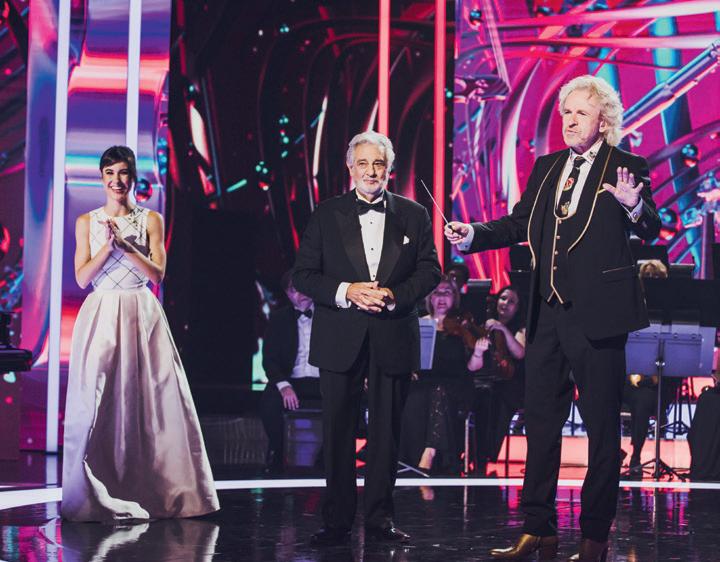
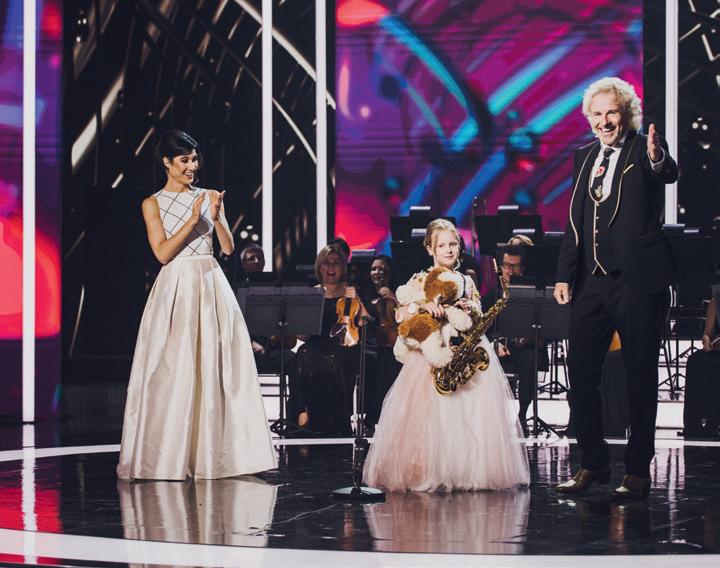

Thomas Gottschalk has been a successful talk show host both in radio and television in lighter genres, so, it was a bit of a surprise to see him appear in the world of classical music. “After such a long television career, I was happy to face completely new challenges. I have never worked in a classical music talent competition before. And neither have I moderated in English for a non-English speaking audience, nor have I worked in any form in Eastern Europe. So, this event is, of course, a unique opportunity and a late triumph for me and I was happy to accept this challenge,” the presenter tells Diplomacy&Trade.
that wasn't a problem,” Thomas Gottschalk says. “You quickly forget the language barrier. The theme of this program is: ‘We play the same language’. A Mozart aria sounds the same in Hungary as it does in Germany,” he adds.
Impressions
Bridge between the event and the audience
Eight years ago, Thomas Gottschalk was already a judge in ‘Das Supertalent’, which had several genres not just (classical) music. As to what experience from that job he can use when presenting the Virtuosos show, he says he admires these talented children. “I am always excited to I see what children can do, how amazing they are. The fact is that I have learned that the moderator is just the presenter who creates the connection between the show and the audience. I know this is about young talents and they are the focus of the show. I am the bridge between the event and the audience, nothing more or less.” The show is not only for Hungary but also for participants and audiences of four other countries of the region. That also presents a sort of challenge regarding this multi-language environment. “I'm German, speaking English in the show, the children come from Hungary, the Czech Republic, Poland, Slovakia and Serbia. That makes things a bit complicated. But on the Virtuosos Visegrád Four Plus show we had to deal with super-intelligent children, for whom
“As soon as the studio doors were closed and the lights were off, things were similarly professional as if I was working in a German or American TVshow. I couldn't find any major differences. The Hungarians were perhaps a little nicer than the Germans. There was also more improvisations during the Hungarian filming, I think it was part of the concept to make the whole thing more lively,” he summarizes his impressions. Regarding the possibility of putting this format on the small screen in Germany and whether it would be successful there, as well, the television personality is of the view that at first, he thought “it would probably be too slow for our hectic German television. But then, the necessary dynamics were done with the editing and I really like how the show turned out to be. The Eastern Europeans seems to appreciate classical music more than the German audience.” He recalls that once a year, he does a classical show that involves an award ceremony. “If it airs on Sunday evening, it will get around a million viewers. Great names such as Jonas Kaufmann or Anne-Sophie Mutter perform there. The interest in Germany as a cultural country and also in public television for classical music is obviously not as great as in Hungary. However, I am sure that the producer of Virtuosos, Mariann Peller knows that she needs to alter the format sometimes to fit the different audiences´ television consuming habits, without taking away the essential values of the show,” Thomas Gottschalk concludes.
DECEMBER 2020 |DIPLOMACY & TRADE| www.dteurope.com
14 photo by BENCE HEGEDŰS
german focus

GERMAN-HUNGARIAN COOPERATION FOR INNOVATION
EU-FUNDED PROGRAM SUPPORTS RESEARCH AND DEVELOPMENT PROJECTS IN HUNGARY
The coronavirus epidemic has also shown that there is no successful economy without innovation. In recent months, it has been needed not only in the health industry and medical research – there is need for innovation, unique ideas so that businesses can continue to offer the right products and services to keep jobs. A joint German-Hungarian EU project is among those serving these goals.
The National Research, Development and Innovation Office support the participation of Hungarian small and medium-sized enterprises in the EUREKA program (financed by European Union and Hungarian funds), which encourages international innovation cooperation.
In the gradually opening sub-programs, Hungarian companies and research institutes initiating the development of innovative products, processes and services together with international partners can apply for a total of HUF 3.2 billion in domestic funding. In a call announced by the National Research, Development and Innovation Fund, two dedicated sub-programs finance the domestic participants
of the Austro-Hungarian and German-Hungarian joint EUREKA projects – each with a separate budget. This is a huge opportunity for the competitiveness of Hungarian enterprises, as it not only enables the development of new, exportable products, services and technologies,
but also contributes to the construction of crossborder professional relations.
HUF 1.8 billion will be provided for the support framework of the sub-program supporting German-Hungarian research and development projects that encourage cooperation in priority
areas such as industry 4.0, artificial intelligence, quantum technology, autonomous machines and systems and biotechnology. In the subprogram, Hungarian companies can obtain domestic funding of between HUF 50-200 million, respectively, for the implementation of their supported international project.

The budget available for the sub-program supporting Austrian-Hungarian EUREKA projects is HUF 900 million with additional HUF 500 million earmarked for other EUREKA projects, while the amount of support that can be applied for per project is HUF 20-70 million. Those eligible for funding from these sub-programs are Hungarian actors – in addition to enterprises, universities and research institutes – that are included as partners or consortium leaders in an internationally approved EUREKA project or submitted project proposal. To launch a EUREKA project, partner institutions from at least two EUREKA member states must work together, so that even bilateral projects can be supported.
In the history of EUREKA collaborations, Hungarian actors have become increasingly successful: so far, 81 joint projects involving 144 Hungarian institutions have received significant support from international and domestic sources. Research into the treatment of Alzheimer's disease, the development of human-robot collaboration and the establishment of an IT management system to modernize elderly care as a EUREKA project were among the programs supported.
www.dteurope.com DIPLOMACY & TRADE| DECEMBER 2020 15
photo by DEPOSITPHOTOS.COM
DIPLOMAT
ON OPEL MODELS AT OPEL FÁBIÁN DEALERSHIP! OPEL FÁBIÁN BUDAÖRS 2040 Budaörs, Garibaldi utca 1. | www.opelfabian.hu | phone: +36 23 802 822 Image is for illustration purposes only. Please contact our colleagues for details. Opel Grandland Hybrid mixed consumption: 1,4 l / 100 km, CO2 emissions: 32 g / km / energy consumption: 20,3 kWh/100 km.
DISCOUNT
NATURE PHOTOGRAPHER OFTHEYEAR 2020
ANNUAL CONTEST PROVES THE CONSTANT EVOLUTION OF HUNGARIAN NATURE PHOTOGRAPHY



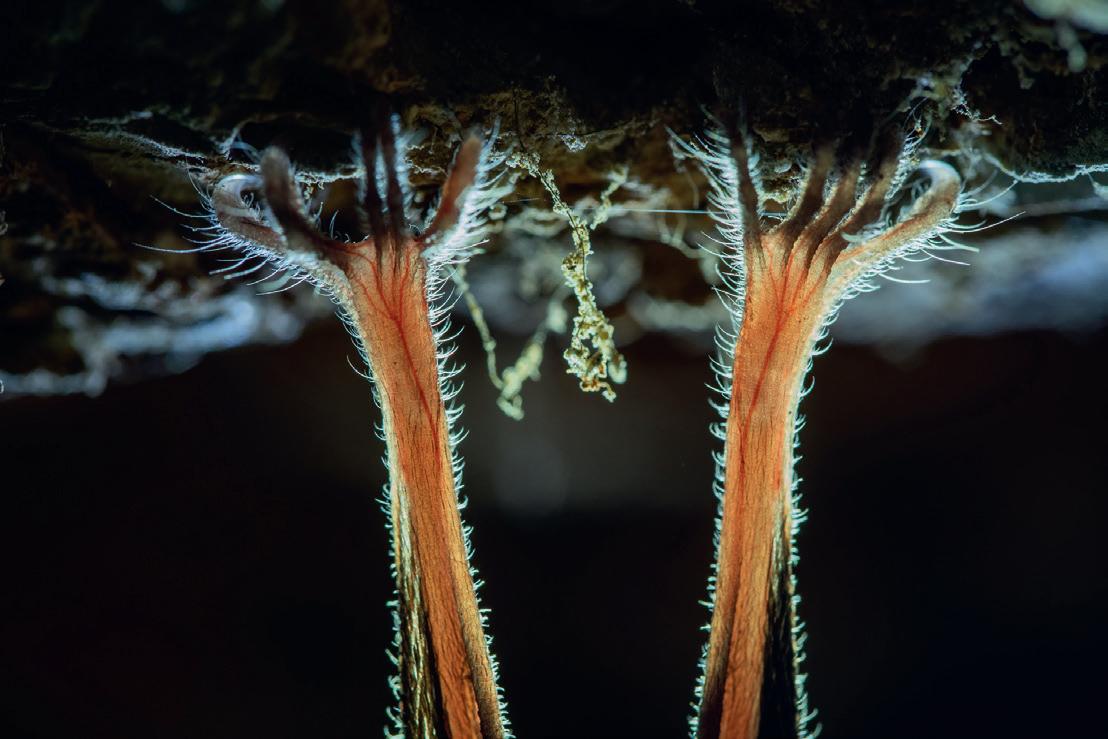
The awards were presented this November in the framework of an online awards ceremony, and an exhibition of the best images of the competition was opened at the Hungarian Museum of Natural History in Budapest. The book 'Nature Photos of the Year – Hungary 2020', compiled from the finalist photos, published in Hungarian and English, was also presented. The 'Nature Photo of the Year – Hungary 2020' title went to Csaba Pintér for his picture 'Airborn hunt', while the 'Nature Photographer of the Year' award was received by Imre Potyó as nine photos of his were selected by the jury among the best pictures this year.
Beautiful works
‘naturArt – the Association of Hungarian Nature Photographers’ was established 30 years ago and one of its first tasks was to organize a photo competition that would enable Hungarian nature photographers to compare their skills year after year and present their most beautiful works to the general public. It is in this spirit that the association held this year, for the 28th time, the ‘Nature Photographer of the Year’ competition, the name-sponsor of which is Lenergy Magyarország Kft. The president of the jury, Dr. Zsolt Kalotás, highlighted that “I have been participating in the judging of the images received for the ‘Nature Photographer of the Year’ competition for more than two decades, and based on my experience in this position, the photographic material received for the competition in 2020 is of higher standard than ever before."
The President of naturArt, Péter Fáth added that this year, Tamás KonczBistricz was again voted the ‘Young Nature Photographer of the Year’ with a very convincing portfolio. “But I must also mention the name of Lili Sztrehárszki, who won the youth category with a very witty image. It is a great pleasure that Hungarian nature photography is constantly evolving and new and new talents are growing up alongside the ‘world stars’. Nothing proves this better than the fact that 14 different photographers won the 14 categories this year! This means that no one has a rented place at the forefront, and you have to know very, very much about nature and all the ins and outs of photography in order for someone to win a category in the ‘Nature Photographer of the Year’ competition!”
DECEMBER 2020 |DIPLOMACY & TRADE| www.dteurope.com culture 16
AIRBORN HUNT by Csaba Pintér
SINGING IN THE RAIN by István Hogya
FINE DETAILS by Lili Sztrehárszki
THE KING OF ICE by Imre Potyó
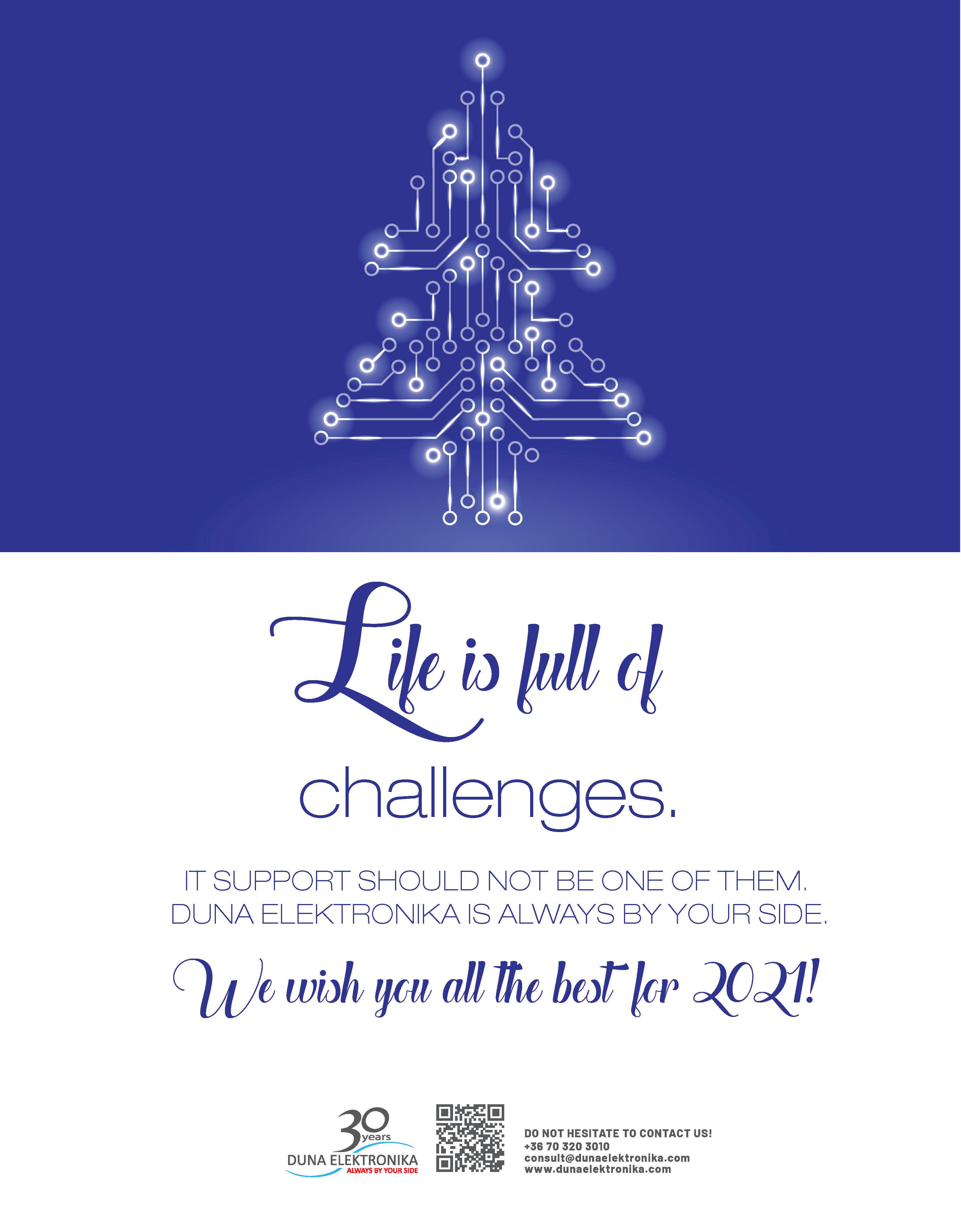
YOU CAN SUBSCRIBE TO OUR NEWSLETTER












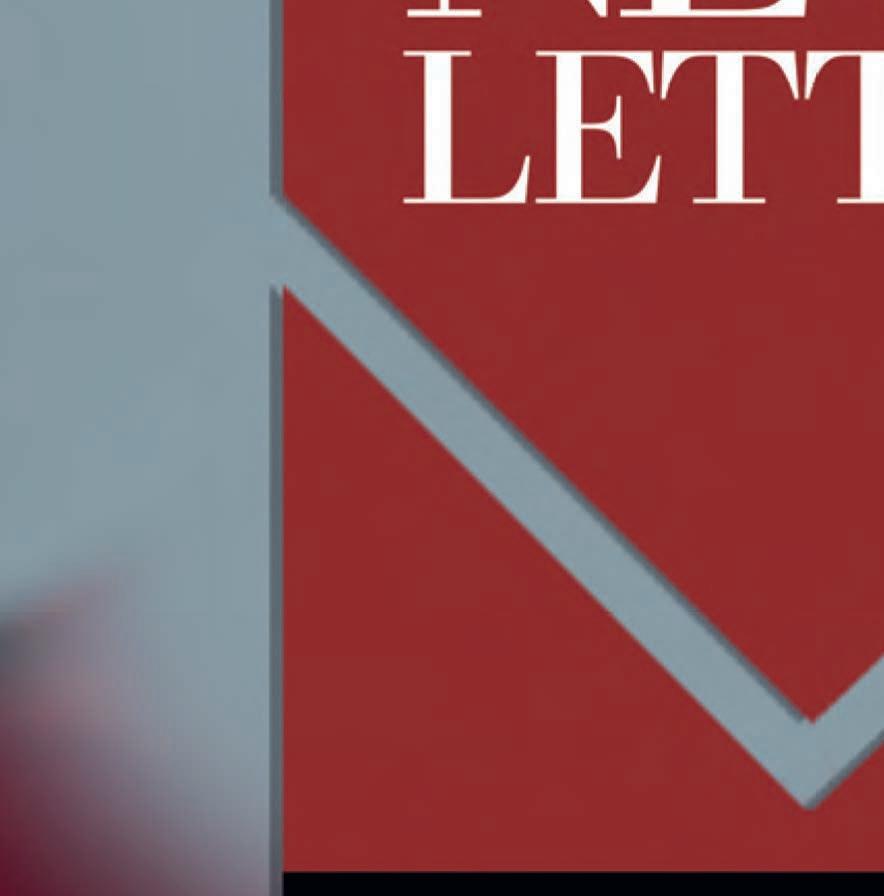

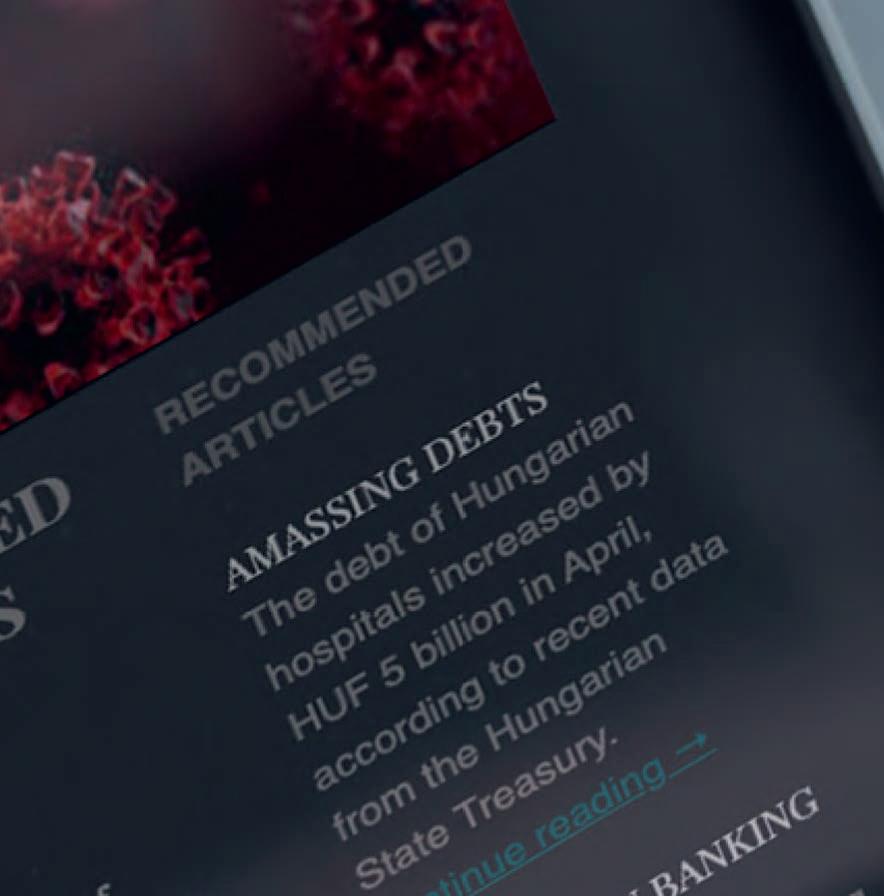




BY READING THIS QR CODE WITH YOUR SMARTPHONE AND FILL IN YOUR DETAILS

THERE IS NO REAL ALTERNATIVE TO GOOD LIVE MUSIC
BUDAPEST STRINGS PLAY HUNGARIAN MUSIC ABROAD IN THEIR ‘MOTHER TONGUE’
A recording of Vivaldi’s Four Seasons by the Budapest Strings chamber orchestra has been seen on YouTube by over 220 million times! On this occasion, the concertmaster and the Chairperson of the Board of Trustees of the Budapest Strings Foundation talk to Diplomacy&Trade about the past and present of the orchestra as well as on the relationship with their audience.
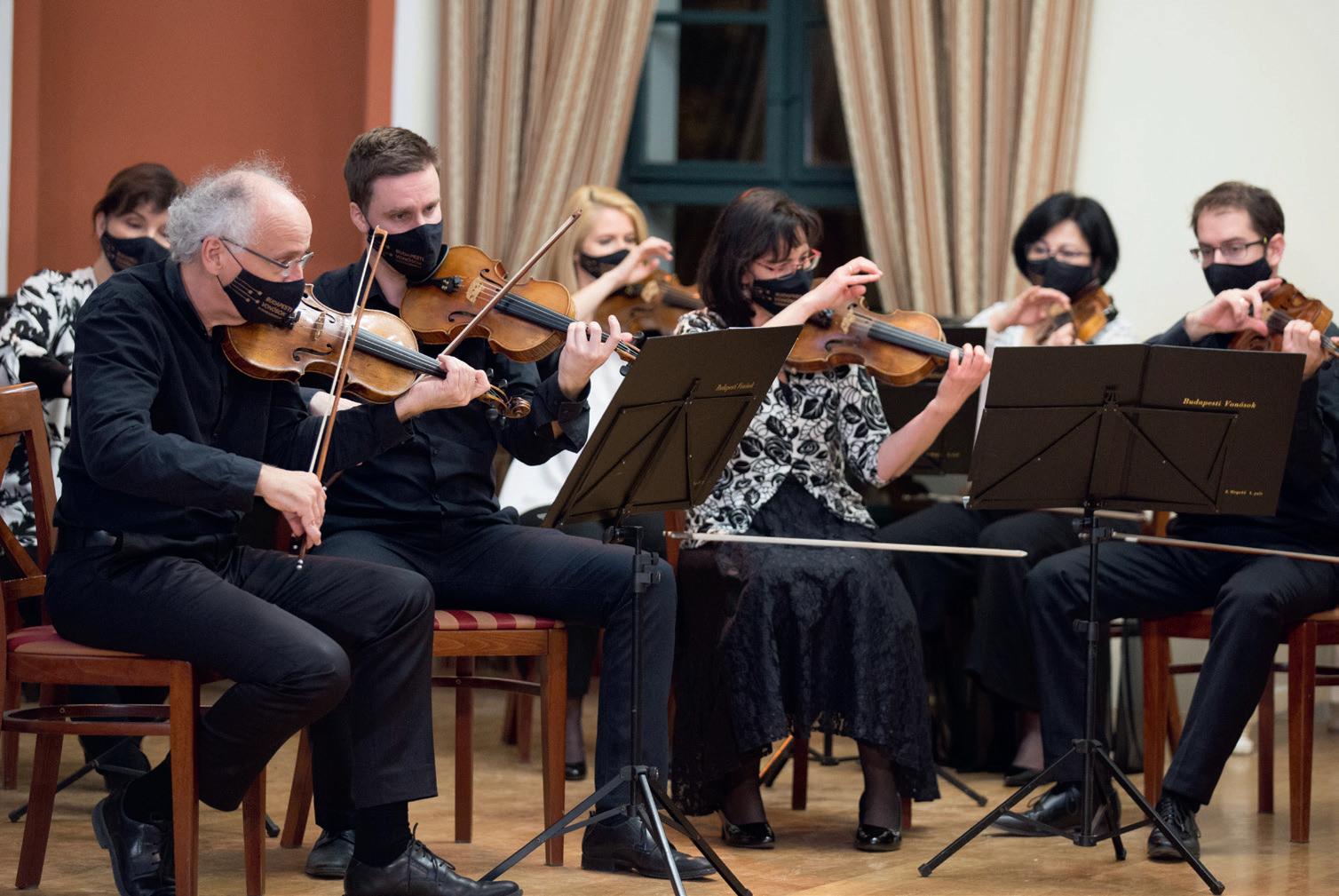
The history of the Budapest Strings Chamber Orchestra dates back over forty years. “Four decades is a long time – even in the life of a string chamber orchestra. This period brought about a lot of changes,” says concertmaster János Pilz. He explains that “this orchestra came about like a circle of friends in 1977 and today, it is only a few of the founding members that still play in it. Despite the changes, the operation of the orchestra was continuous and we are still alive and kicking. Over this time, the taste of the audience has changed and the orchestra has had to follow these changes with regard to both the repertoire and its relationship with the audience. As far as our judgement by the public is concerned, I believe that this orchestra is still highly appreciated, we are invited to numerous festivals and we have several program series popular with the public. So, we don’t really have reasons to complain.”
He adds that what has not changed fundamentally is the orchestra’s commitment to always ensure a quality performance. “As I said, the orchestra initially grew out of a circle of friends and that family atmosphere characterizing us is still with us.”
In reference to this history of over forty years, “which is almost a lifetime,” the Chairperson of the Board of Trustees of the Budapest Strings Foundation, Dr. Andrea Jádi Németh highlights the name of art director Károly Botvay who no longer plays in the orchestra but follows them closely. “What amazes me about this orchestra is the vitality and freshness and that they have always managed to ‘talk’ to all generations at the same time, thus addressing various audiences.” She also emphasizes the friendly family atmosphere, the togetherness.
No good or bad audience
The Budapest Strings Chamber Orchestra has played to different audiences in many different parts of the world. When asked whether people have different attitude to classical music in different countries, János Pilz points out that “actually, the only difference we have experienced with the audiences in various

countries is in temperament – like that of an Italian or a British audience. Whatever the audience, they are equally important for us. People come to the concert – irrespective of the country or continent – because they are interested and would like to hear good music, would like to receive something extraordinary. That is why we usually say amongst us that an audience cannot really be good or bad, the audience is always very interested and curious. The outcome of a given concert, what the audience receives from a particular performance, totally depends on us, on what relationship we can forge with that audience,” he adds.
Envoys of Hungarian music
Playing the works of Hungarian composers abroad is like being the envoy of Hungarian music. As to what sort of feedback they have experienced in this respect, the concertmaster believes that “we, Hungarian musicians are very fortunate as we have very good composers:
Béla Bartók, Zoltán Kodály, Ernő Dohnányi or Leó Weiner, just to give you some names from the 20th century. We always enjoy playing their works. I also think that we have a bit of an advantage over others when we play pieces from these composers: this is actually our ‘mother tongue’. Whenever we play these compositions, we always feel how much people appreciate that they hear Hungarian music from performers who play that in their ‘mother tongue’ and that fills us with joy, as well.”
Over 220 million views
In modern times, a measurement of success for performing artists is popularity on platforms like YouTube where the counter at the recording of Vivaldi’s Four Seasons by the Budapest String shows over 220 million views and over a million ‘likes’! According to János Pilz, “Vivaldi’s Four Seasons is perhaps the best known and most frequently performed classical music piece in the world, something that is basically compulsory for every single violin soloist – and chamber orchestra – to perform.
The recording we are talking about was made some thirty years ago by, we can daresay, the predecessors of the current members of the Budapest Strings. It is a recording made in a very classical way and I believe that people all over the world award and appreciate this performance format with these 220 million clicks. This composition by Vivaldi has been performed in many-many styles and today, we also play it with different emphasis, and I feel that this recording has a very deserved place among all the others.”
Andrea Jádi Németh agrees. “There are several different approaches and concepts when it comes to performing Vivaldi’s Four Seasons. The way the Budapest Strings orchestra played it was a very classical and lasting approach. It is amazing that among the multitude of recordings of this classical piece, this is the one that the audience fell in love with so much. I am sure that all those who created numerous visualizations of this very recording did a good job in capturing the essential, timeless beauty of the Budapest Strings audio recording.”
Coping with the pandemic
One of the areas hardest hit by the COVID-19 pandemic is that of performing artists. “Actually, this very new and frustrating situation made us realize how important the audience is for us. There are musicians who specialize in studio recordings but our conviction is that there is no real alternative to good live music. For us, it is very important that we give and there should be people there who receive that,” János Pilz says, adding that it is very painful for the members of the orchestra that in the past half a year or so, they could only play to a very much reduced number of people and had to resort to online opportunities. “On the other hand, it is also fortunate to live in an era when we can reach the audience through the world wide web. That also helps us maintain our relations with our audiences –until we can have full-house concerts again.”
In behalf of the board of trustees, Andrea Jádi Németh believes that they have great responsibility “as we are very well aware that performers need the stage, the opportunity to play. Therefore, we are seeking possibilities and channels where the orchestra have the opportunity to maintain contact with the audience, like online tools. At the same time, we are also contemplating ways that this contact would not only be a one-direction one but also create a personalized experience somehow. This is a great challenge and I am convinced that technology will rapidly develop to help us in these efforts to create a tangible experience for both the orchestra and its audience.”
THE BUDAPEST STRINGS RECORDING WATCHED OVER 220 MILLION TIMES

culture www.dteurope.com DIPLOMACY & TRADE| DECEMBER 2020 19
photo by DÁVID HARANGOZÓ, ANDRÁS HAJNAL
Dr. Andrea Jádi Németh János Pilz
witty leaks
WITTY LEAKS
THEBELGIANOF SZENTENDRE

DENIJS DILLE AND BÉLA BARTÓK – A MUSICAL CONNECTION BETWEEN BELGIUM AND HUNGARY
BY BELGIAN AMBASSADOR SIEGFRIED PEINEN

by Dille) Béla Bartók Archives in Budapest. Denijs Dille also served as the founder of the Bartók Archive in the Royal Albertina Library of Brussels. Next to Béla Bartók, Dille was also close friends with Hungarian composer Zoltán Kodály. The contributions of Mr. Dille to the legacy of Bartók (the archives, books, scientific assessments about his work, etc.) are of enormous value to this very day.
The Belgian of Szentendre Denijs Dille was a well-respected academic scholar and his work embodies another, often unknown, aspect of cultural bilateral relations between our two countries. To commemorate the contributions of Denijs Dille to the musical heritage of Béla Bartók, there is a memorial plate in Szentendre, where Dille lived after moving to Hungary for his work on Béla Bartók. It was erected by the town of Szentendre with the donations of Lajos Pap and the Rodin Gallery Cafe on the last day of the Bartók memorial-year, September 26, 2006. It is often these personal stories and anecdotes that spice up the relations between two countries. Whenever I have the chance, I take visitors from Belgium – both official and private – to Szentendre. The cobbled streets, the historical buildings, the main square, the magnificent view from the church hill on the historical center, the walks on the Danube promenade, the Szentendre Japanese Garden… There is so much to see and experience for young and old…. Our visitors from Belgium fall in love with Szentendre every time. But when I tell them the story of Denijs Dille who lost his heart to Hungary and more specifically to the music of Béla Bartók and Szentendre, it is really the icing on the cake!

(Ambassador Peinen wishes to thank Mr. Thomas Bresseleers, intern at the Belgian Embassy in Budapest in 2018, for his research on this topic.)
Opposite the Central Station in Brussels, at the entrance from the ‘Spanjeplein’, a statue of 20th century Hungarian composer Béla Bartók was inaugurated in 1995. It was a gift from the city of Budapest on the occasion of the 50th anniversary of Bartók's death. That year, a series of concerts
‘Jubilate Hungaria 95’ around the music of Bartók was also organized in Brussels. This unusually beautiful modern statue of Bartók (by Imre Varga) can be easily missed in this rather accidental open space. Only a couple of weeks ago, on September 26, a commemoration took place there on the occasion of the 75th anniversary of the death of Béla Bartók.
Inspiration by Bartók
Becoming a Bartók expert
Denijs Dille (on the right) with Béla Bartók Jr.

Since 2015, the Balassi institute (the Cultural institute of the Embassy of Hungary in Brussels) organizes the Bartók Festival every year. It is amazing to see how much the work of Bartók still influences contemporary artists to this day. For example, the famous Belgian choreographer Anne Teresa De Keersmaeker created a well-known choreography using his music. She titled the piece ‘Bartók/Aantekeningen’ and presented it in 1986 in Brussels.
However, only few people know that there is another special connection between Béla Bartók and Belgium. Music has always been an important part of the cultural contacts between our countries since early official bilateral diplomatic relations. In this regard, it is a Belgian priest, Denijs Dille (1904-2005) who deserves a special mention. Mr. Dille met with Hungarian musician Béla Bartók for the first time in 1937, after which he became ever more connected with the Hungarian composer’s life. Dille gave lectures and published books about Bartók’s work. After the death of Bartók, in 1945, Dille became a Bartók expert and undertook several trips to Hungary to dig through all sorts of archive material to publish several new books about the life and work of Bartók. In 1960, the Hungarian Academy of Sciences offered him a job as head of the (to be founded
“The Belgian of Szentendre”, Catholic Priest and music teacher, abraded the stones of this square for 40 years. He was one of the great individuals of Bartókresearch and the first director of the Hungarian Academy of Sciences’ Bartók archives.”
“…the only thing I want if you have the opportunity, tell them that I stayed loyal…”
DECEMBER 2020 |DIPLOMACY & TRADE| www.dteurope.com
20
IN THIS SERIES, DIPLOMATS SHARE PERSONAL ACCOUNTS OF THEIR EXPERIENCES ON “EXCURSIONS” into Hungarian culture, art, gastronomy & scenery. photo by EMBASSY OF BELGIUM, DEPOSITPHOTOS.COM
DENIJS DILLE 1904-2005
5TH ‘ZÚZMARA’ RUNNING RACE
JANUARY 12, 2021, HUNGEXPO FAIR SITE
‘Zúzmara’ Running Race is a half-marathon with additional shorter distance runs throughout the day. The annual race is traditionally held at Hungexpo. If you feel the energy to fulfill any distance, go for it! Runners compete on a flat course in, around and outside the exhibition site and on a horse-racing track. For the half-marathon there are two loops with an extension on the road after the first loop. The terrain greatly depends on the weather. There is something special about the atmosphere at this race. The start in the building offers comfort (and coffee!) for those supporting the runners, while those taking part seem to get wrapped up in the mild absurdity of racing in such conditions. In addition to the basic distances (21, 10 and 5 kms) there will be combined distances available for those who like to run with a friend and share the distance. www.futanet.hu
OPERADVENT (VIRTUAL PREPARATION FOR HOLIDAYS WITH ARTISTS OF THE HUNGARIAN STATE OPERA)









available online UNTIL CHRISTMAS
The Hungarian State Opera presents new recordings organized into an Advent calendar: newly recorded sound recordings and video productions are to inspire music lovers in their preparation for the festive season. Although the Opera is forced to operate behind closed doors during the lockdown, the institute is even more determined to supply its audiences with the experience of music and dance. Every day, a window in the virtual Advent calendar opens on the website and community site of the Opera that reveals a new recording of a song, aria, an excerpt from an opera, ballet production or a symphonic piece in connection with the festive season. The performers include popular soloists and musicians as well as artists of the Chorus, Orchestra and Ballet, but members of the Children’s Chorus also hide behind one of the windows. The calendar can be accessed at www.opera.hu/hu/advent2020/
IRON MAIDEN – LEGACY OF THE BEAST TOUR

JUNE
Founded by bassist Steve Harris in the mid ‘70s, Iron Maiden are an institution. Over the course of 44 years, they have come to embody a spirit of fearless creative independence, ferocious dedication to their fans, and a cheerful indifference to their critics that’s won them a following that spans every culture, generation, and time-zone. A story of gritty determination and courageous defiance of the naysayers, theirs has been an adventure like no other. What makes these qualities even more notable is that they developed almost entirely without the acknowledgement of mainstream media. While celebrity culture and the next big thing occupied the airwaves, Iron Maiden were embarking on the marathon 192-date 1984/5 World Slavery tour, playing at Rock In Rio in 1985, and mounting a command performance at the biggest-ever Monsters Of Rock festival at Donington in 1988 with 107,000 fans in attendance. But it’s really Iron Maiden’s iron-clad resolve to always push the boundaries that gives their career such astonishing distinction. From groundbreaking performances in Poland behind the Iron Curtain in 1984 at the height of the Cold War, around South America in 1991, through the Middle East and India in 2007, and Indonesia in 2011 among many others, Iron Maiden’s relentless forward momentum has left an indelible impression on the globe. With over 90 million album sales, more than 2,000 live performances in 63 countries, tens of millions of fans and 16 studio albums of unerring quality and power to their name, Iron Maiden have more than earned their proudly-held status as one of the most influential and revered rock bands of all time. Supports for their Hungary show to be staged in the summer, will be Lord Of The Lost. www.livenation.hu



DÜRER – BLACK AND WHITE available online HUNGARIAN FINE ARTS MUSEUM

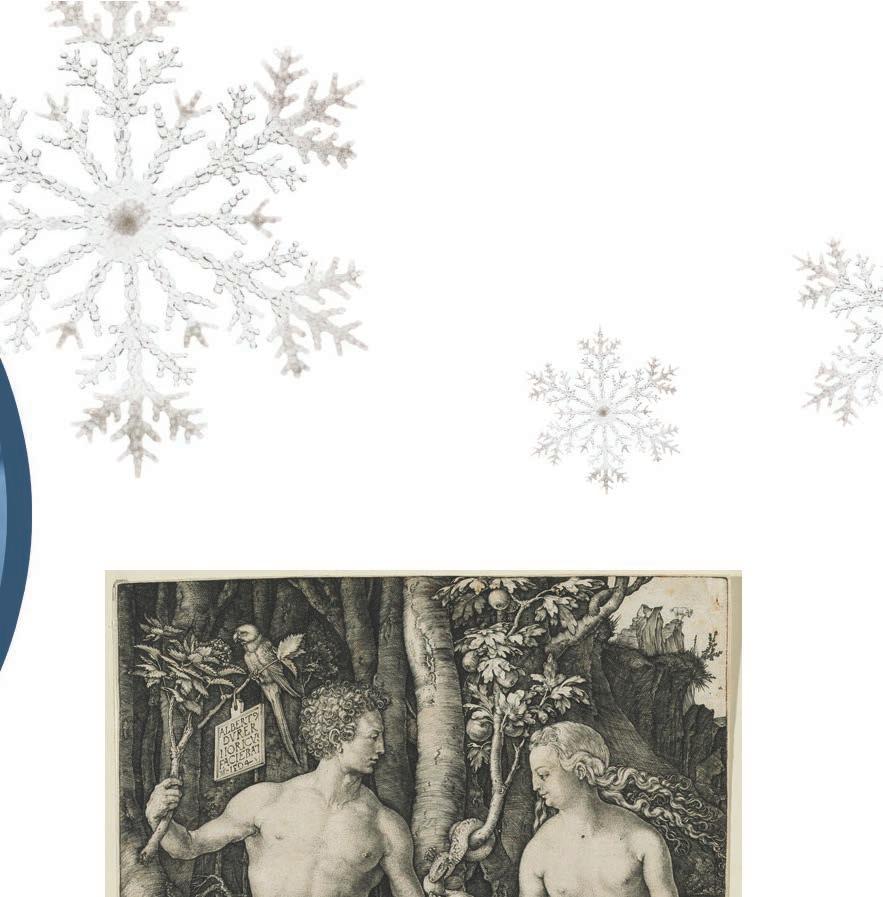
Due to the public health emergency caused by COVID-19, the Museum of Fine Arts Budapest is closed (just as all museums in Hungary). To please art fans, the institution invites them on several virtual tours, sharing its digital content with the public. Albrecht Dürer (1471–1528), the most significant painter and graphic artist of the German Renaissance was often compared to the influential artist of Greek antiquity, Apelles, in that the exceptional descriptive power and richness of detail of his engravings and woodcuts were praised. Desiderius Erasmus, the humanist scholar, pointed out that Dürer even transcended Apelles in greatness, since the latter required colors to achieve what Dürer could do with black lines alone. Dürer’s father was a goldsmith, who had left Ajtós, a town close to Gyula, Hungary, to settle in Nuremberg in 1455. Albrecht was born here, as the third child of his parents, in 1471. He started his training as a goldsmith in his father’s workshop, then in 1486 he was apprenticed to Michael Wolgemut (1434–1519) in Nuremberg for three years, where he learned the techniques of painting as well as woodcut printing. In 1490, he departed Nuremberg, and on his journeys, he visited the Upper Rhineland and presumably the Netherlands, too. Returning to his native Nuremberg, Dürer worked as an independent artist, mostly publishing his own works himself. He probably undertook his first journey to Venice in the autumn of 1494, where he studied Italian Renaissance works. On his return to Nuremberg, in 1495 he became acquainted with humanist themes through his academic friends, such as Willibald Pirckheimer. These themes, besides his religious and mythological imagery, also appeared in his prints. In 1505 he travelled to Italy for the second time and returned home in 1507. Apart from his undistinguished sojourns, Dürer lived and worked in Nuremberg. It was Albrecht Dürer who elevated the techniques of woodcut and engraving to the status of painting and sculpture in Europe, where they had emerged in the late 14th and mid-15th centuries, respectively, due to the cheap mass production of paper. In contrast with his great ancestors, Dürer created something new in both woodcut and engraving, while he also experimented with drypoint and etching. As a result of his exceptionally prolific life, he bequeathed a significant oeuvre of paintings, 970 drawings, 105 intaglio prints (engravings, etchings, drypoints) and 346 woodcuts. There are some 250 engravings in the rich collection of the Museum of Fine Arts. A selection of the most beautiful ones of this collection can be seen in the institution’s website. www.on-line.szepmuveszeti.hu
BALCONY CONCERTS
DECEMBER 13 AND 20, available online
The Hungarian Heritage House is a national institution founded in 2001 with the purpose of preserving and promoting Hungarian folk tradition. To fulfil its duty during the pandemic, the institution, located in the historic building of the former ‘Vigadó’ (Entertainment Hall) of Buda in Fő utca, is entertaining residents via balcony folk concerts that keep social distancing in mind.
Upcoming concerts are:

December 13, 7.00 PM: Babra Band

December 20, 7.00 PM: Magos Ensemble


The concerts, of course, can be followed online, too www.youtube.com/c/hagyomanyokhazaofficial
DENIS MATSUEV AND THE HUNGARIAN NATIONAL PHILHARMONIC
available online
Pursuant to the decision made by the government of Hungary with respect to the coronavirus pandemic, Müpa Budapest has shut its doors and will not be admitting audiences for a while. Nevertheless, viewers are invited to take part in the live streamed concerts and the special recorded performances being broadcast on its online platforms as part of the Müpa Home series. You can also join the Müpa+ membership program free of charge, and enjoy different music videos such as the concert of Denis Matsuev and the Hungarian National Philharmonic. Boasting dazzling power and technique, while also passionately attracted to jazz improvisation, Russian pianist Denis Matsuev is a favorite with the Budapest audience. One of the compositions he will perform in the company of Zoltán Kocsis and the Hungarian National Philharmonic is Rachmaninoff's notoriously difficult Piano Concerto No. 3, which demands special abilities from its player. It is also more than a trial of stamina, speed and precision: the central musical idea of the piece is that it be sung on the instrument as if it were performed by a singer. Songs seem to reverberate in Schumann's symphony as well, the songs of the Rheine, and it was not without a reason that a contemporary critic heard the coarse and pithy power of folk songs in the melodies of the piece, and found that one of the movements resembled a sublime Gloria. A rural character and religious rapture: it is interesting that Rachmaninoff's piano concerto in D minor evokes similar associations, even though he claimed "the first theme of my Third Concerto is not taken from any folk-song forms or from church sources. It wrote itself.” In any case, there can be no doubt this concert will be the encounter of two composers of a like mind, as well as of two splendid pianists. www.mupa.hu

21 photo by DEPOSITPHOTOS.COM, JOHN MCMURTRIE, MUSEUM OF FINE ARTS, HERITAGE HOUSE/GÁBOR DUSA www.dteurope.com DIPLOMACY & TRADE| DECEMBER 2020
9, 2021, GROUPAMA ARENA
JOININGFORCESFORTRADITION
BUDAPEST CHRISTMAS FAIR TO BE HELD ONLINE

The Budapest Christmas Market has been the highlight of the Hungarian capital during Advent for decades. As Christmas fairs are overshadowed by the coronavirus pandemic, organizers of the Budapest Christmas Fair and the Hungarian Craft Association present a special online platform for those who would love to buy special handicraft products as gift, supporting local craftspeople.
Within the framework of a campaign, Budapest Brand Zrt. has been working to support the culture of Hungarian traditional handicrafts and revitalize the craftsmen’s bond with the audience. “In these troubled times, we do encourage everyone to opt

for Hungarian handicrafts as a Christmas present. Buying these will greatly help our craftsmen,” Csaba Faix, CEO of Budapest Brand emphasized. The Budapest Christmas campaign includes a short video, which unravels the secrets of the craftsmen’s workshops and shares
a few interesting facts about this profession. It will also feature the multi-generational Kovács family’s blue-dye manufacturing workshop, Mária Panákné Kovács with her daughters Annamária and Veronika, then the great potter György K. Nagy will show the making of traditional ceramic pots. Last but not least, Csaba Pankotai will talk about the beauties of making leather goods. The Budapest Christmas website introduces, among others, florists, marionette-, leather-, wood-, metal-, paper, and glassworkers, ceramists, apiarists, textile-, enamel- and soap makers as well. Craftsmen are not the only ones to promote the campaign. Chef and food blogger Zsófia Mautner and journalist Krisztina Bombera will also contribute to the initiative as huge fans of hand-made souvenirs.

DECEMBER 2020 |DIPLOMACY & TRADE| www.dteurope.com festive
22 photo by DEPOSITPHOTOS.COM
season
WATCH THE VIDEO AND BROWSE THE PRODUCTS HERE
e itz arlton uda e to er e ti emeal ac age and lendid de ertcreation orta e a a . no t eroa ted oletur e roa ted duc t e olida c ede o l ou emadebegliandman moredi e int e armt o our ome. lea e lace ourordere er da it a minimum o 24 our notice at +36 1 429 5500 or atconcierge.budrz@ritzcarlton.com
FESTIVE TAKE-AWAY
FIVE THINGS YOU NEVER KNEW





LEARN ABOUT TOKAJ ASZÚ







There are things one tends to take for granted because as long as you can remember you have always known about them. For many, Tokaj aszú is such a self-evident and therefore less interesting wine category. Actually, it is a unique wine in many respects and with the Festive Season fast approaching it is high time to take a look at what makes it special.

is uneven and is spread over a longer period therefore picking aszú berries is a long term project. Just imagine what it’s like to select and pick the treasured aszú berries one by one from the bunches with the sugary juice freezing over your skin, on freezing cold November mornings. And all the while you have to focus not to pick and put any rotten or vinegary berries in the baskets because they might spoil your whole day’s work. Even the most experienced workers can’t pick more than 6-7 kilograms a day, so you can imagine how precious their skills are.
Aszú Day























We all love to celebrate. Celebrations grow into tradition, and provide causes for family occasions to sustain continuity in our lives. Many things can be celebrated, private anniversaries and birthdays just as well as festive occasions. Tokaj aszú, this fabulous and extraordinary wine deserves its own special day. Aszú Day is celebrated on December 10 each all over the world. It’s something Hungarians can be proud of, so let’s celebrate by opening a bottle of aszú on this day!
Step outside your gastro comfort zone

Without the special microclimate and geographical features of the wine region













Tokaj aszú could not have come into existence. With two rivers, Bodrog and Tisza running through the region, autumn mornings in Tokaj are shrouded in mist. Morning fog followed by dry weather during the day is conducive to the development of Botrytis cinerea, a.k.a. noble rot which then pierces the skins of healthy and ripe
grapes thus initiating the process of „aszúsodás”. The lack of just one of these factors is enough to render a vintage fruitless as far as aszú production is concerned.
Hand picking squared
Harvesting by hand is not unusual but aszú harvesting goes on a totally different level. The emergence of aszú berries within the bunches
A Feast is What You Make It
Wines, wine selections, monastic products of Pannonhalma Archabbey for special holiday price with free home delivery




















With its high residual sugar content Tokaj aszú is an excellent dessert wine, and actually it can even function as a dessert in itself at the end of meals. But there is so much more to aszú then just accompanying confections. Classical food matches include foie gras or strong, savory cheeses like Stilton or Roquefort. Any chicken, duck or pheasant dish made with some fruit is likely to work well with aszús and even sweet toned vegetables – like squash, sweet potatoes or carrots – are good matches. No wonder that aszú is so popular in Asia, as it is tailor-made to accompany their sweet and spicy dishes.
Aszú is more than just a sweet wine
We all have our favorite grape varieties, wine styles and wineries. If you prefer dry wines then maybe you’re not too keen on sweet wines. However, it’s worth pointing out that aszú is more than just a sweet wine. One of the truly great wines of the world, aszú expresses the special terroir of the Tokaj wine region and also the unique technology developed centuries ago which is not practiced in any other part of the world. The incredible complexity of its aromas, the vibrant acidity that counterpoints the high residual sugar and, when kept under the right conditions, its extreme longevity – one only has to think of the exquisite 1956 aszús, and some people have even tasted aszús from 1848 – all make for an unforgettable wine experience. Don’t shy away from discovering its greatness!
WHEN YOU OPEN A BOTTLE OF ASZÚ DURING THE FESTIVE PERIOD, USE THE HASHTAG #KoccintsAszuval TO SHARE THE EXPERIENCE
wine www.dteurope.com DIPLOMACY & TRADE| DECEMBER 2020 23
photo by FERENC DANCSECS
Apatsag_2020_12_Karacsonyi_Hirdetes_260x105mm_v1.indd 1 2020. 12. 02. 11:52
Some just see sheer speed. We see inspirational engineering.






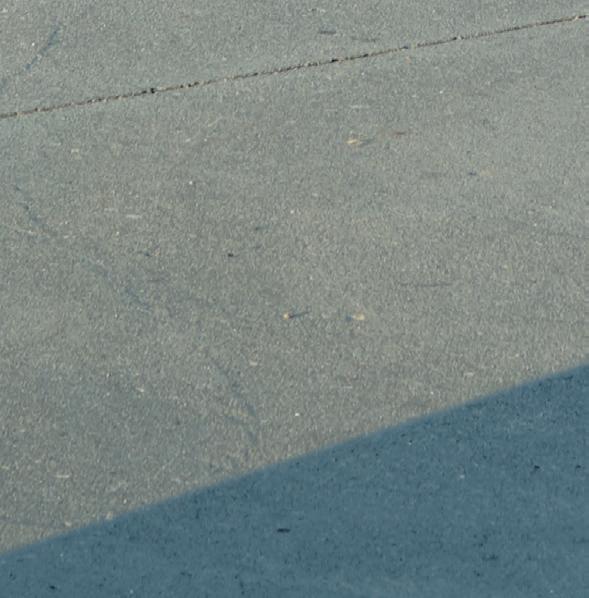
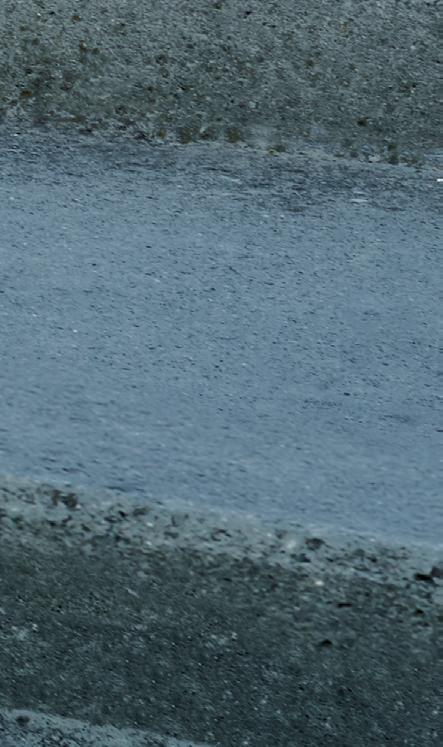





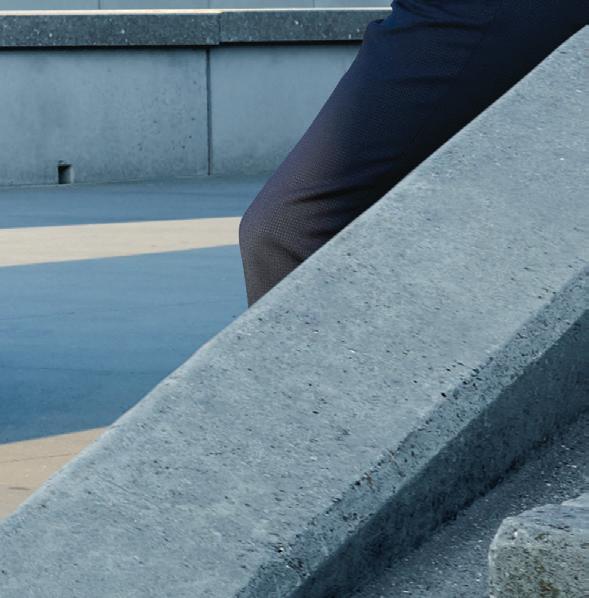
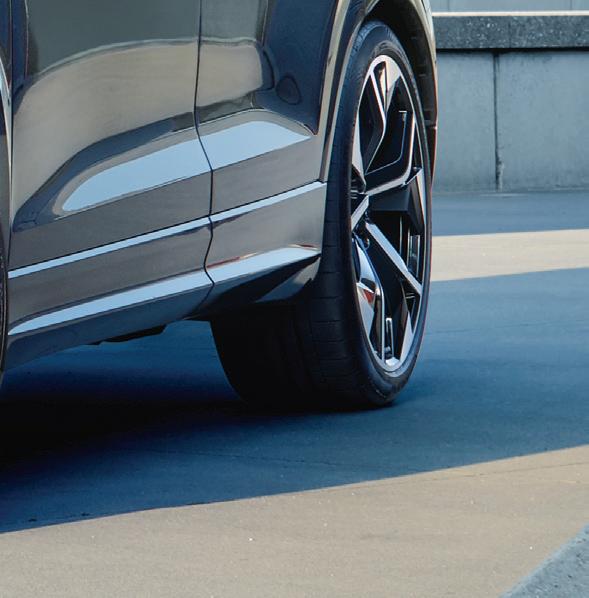
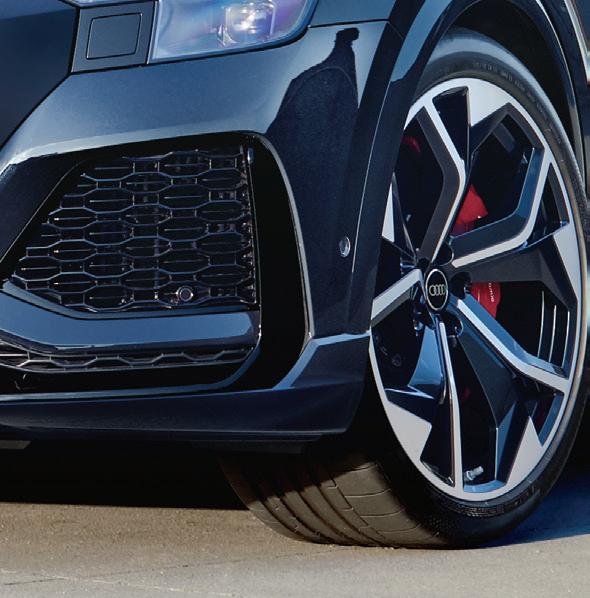
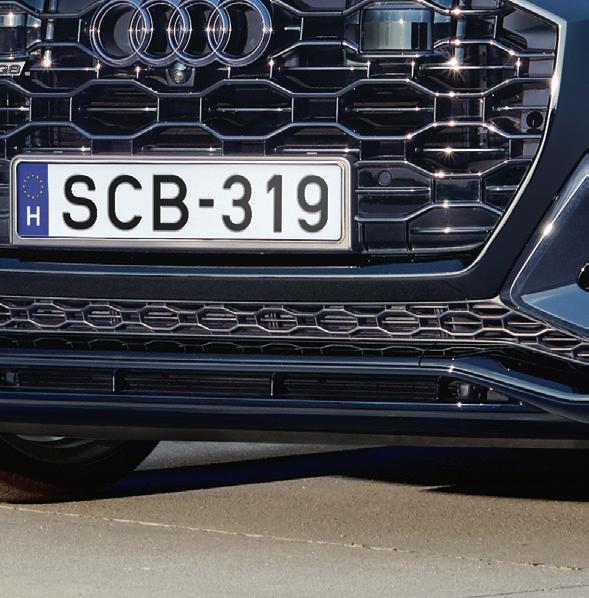
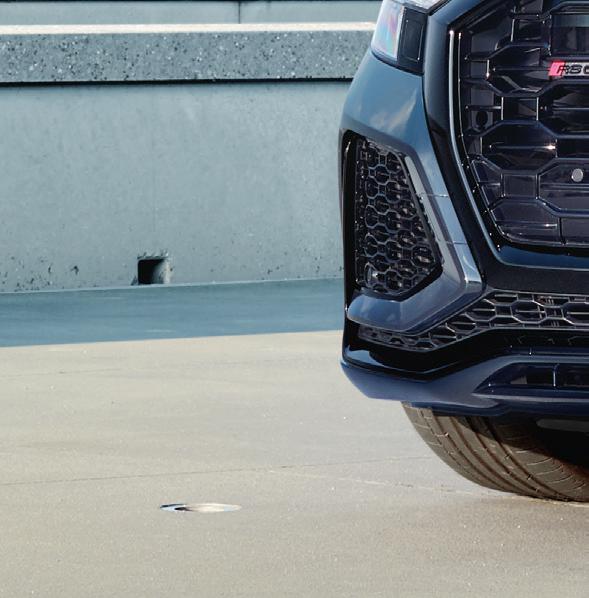



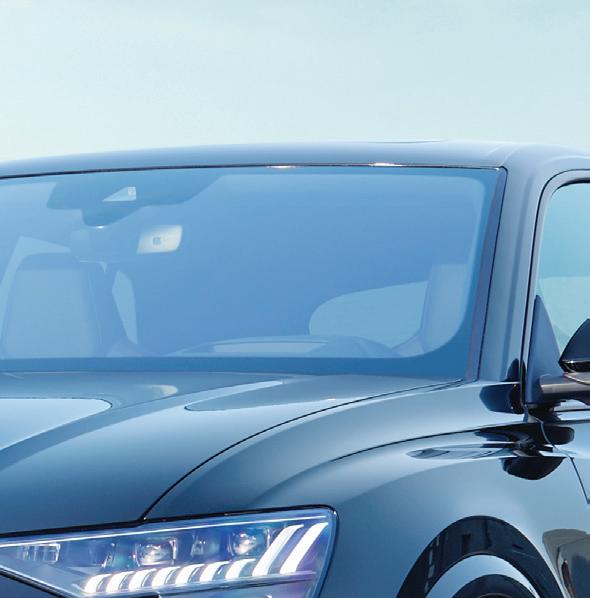
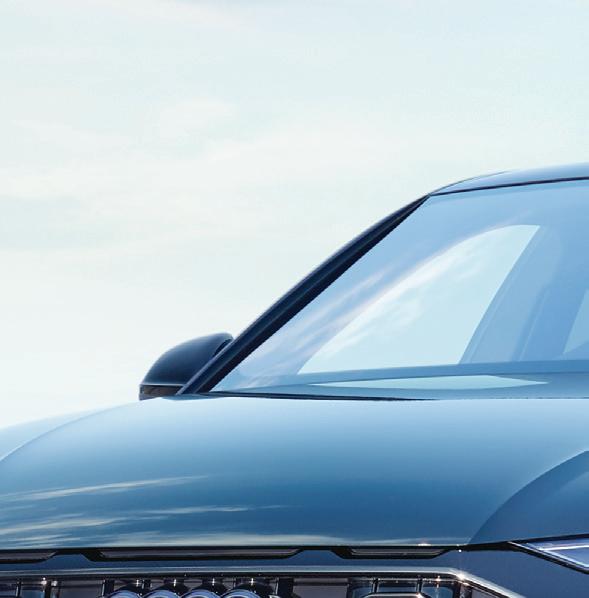
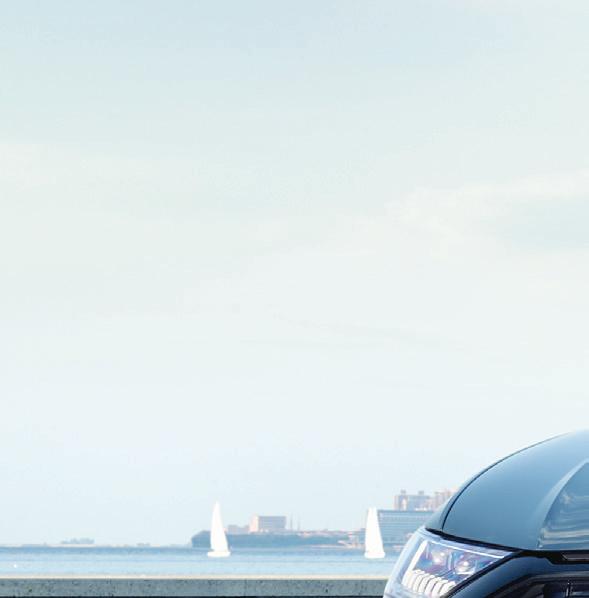



















The Audi RS Q8. Find out more at progress.audi Future is an attitude
l/100
Fuel consumption, combined: 12,1 l/100 km. CO2 emissions, combined: 276–277 g/km. The values specified are based on the default factory setup recorded at the type approval and are valid at the time the ad is posted. The designated values were measured according to WLTP. They do not apply to individual vehicles and are not part of the information notice, but serve the purpose of comparing different types of vehicles, in accordance with the provisions of Regulation (EC) No 715/2007. These values are influenced by additional equipment, accessories, driving habits and other non-technical (e.g. environmental) factors. The motor vehicle shown in the picture is an illustration and may contain additional equipment.
Some just see sheer speed. We see inspirational engineering. Fuel consumption, combined: urban XX.XX–XX.XX
km | CO₂ emissions, combined: extra urban XX.XX–XX.XX g/km
The Audi RS Q8. Future is an attitude



















































































 BY SÁNDOR LACZKÓ
BY SÁNDOR LACZKÓ








































































































































































